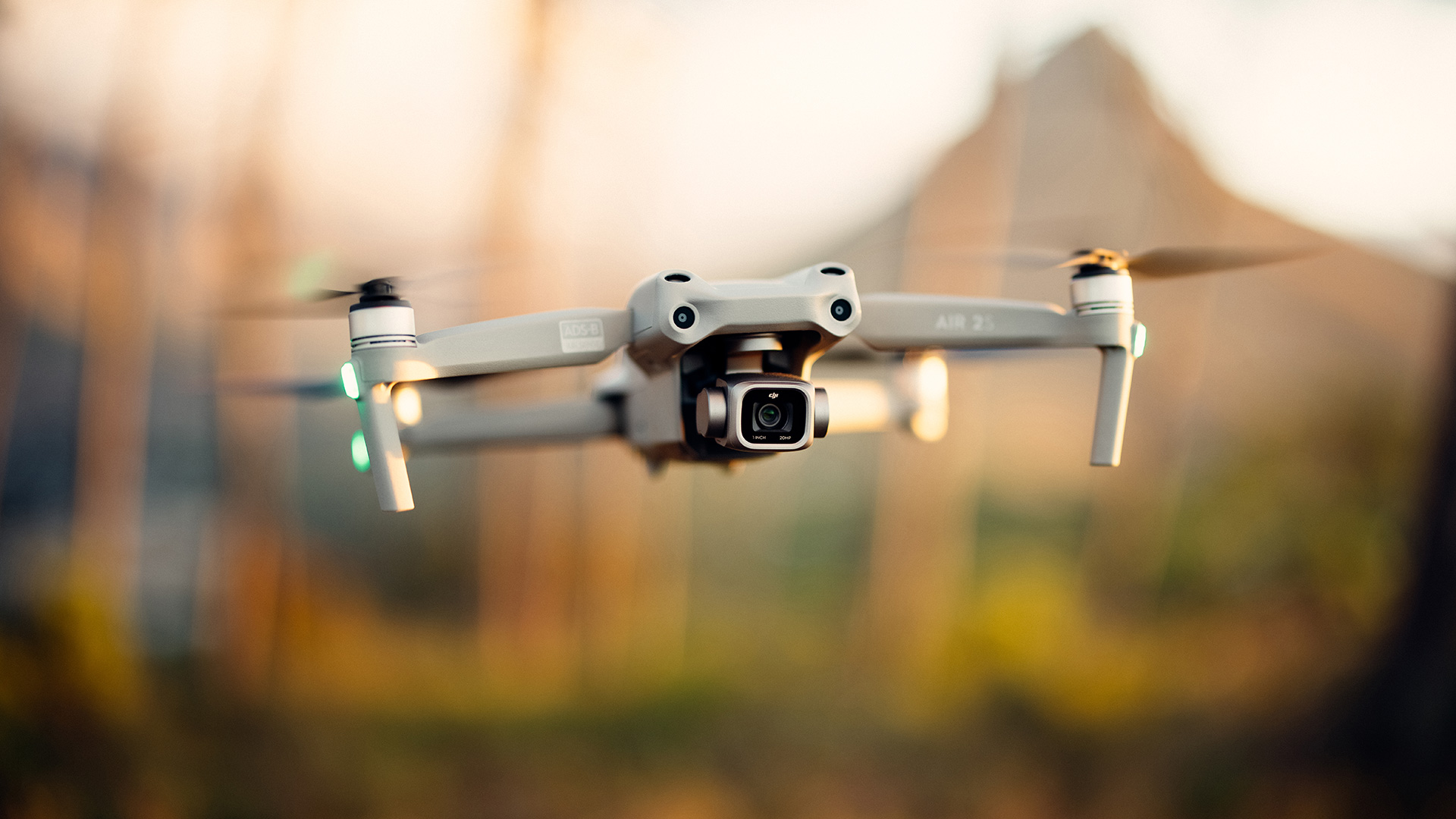

Derek Adams
Welcome to the world of the best drones, where aerial videography and photography have been revolutionised for both pros and hobbyists alike.
Curating a guide such as this is a big responsibility, which is why I take my job seriously, not only by testing the models listed thoroughly but also by asking experts for their input.
Modern drones are like flying tripods, perfect for capturing holiday scenes and travel adventures. Some models even autonomously follow you, capturing high-res footage as you conquer ski slopes or navigate rugged terrain on a mountain bike.
The best drone right now – at least, the one we like the most – is DJI's Mini 4 Pro. It's compact, with a sensational camera and flying performance, perfect for any self-respecting amateur pilot. If you need something meatier, check out the DJI Mavic 3 Classic. For fun selfie shots, we can't recommend the dinky HoverAir X1 more.
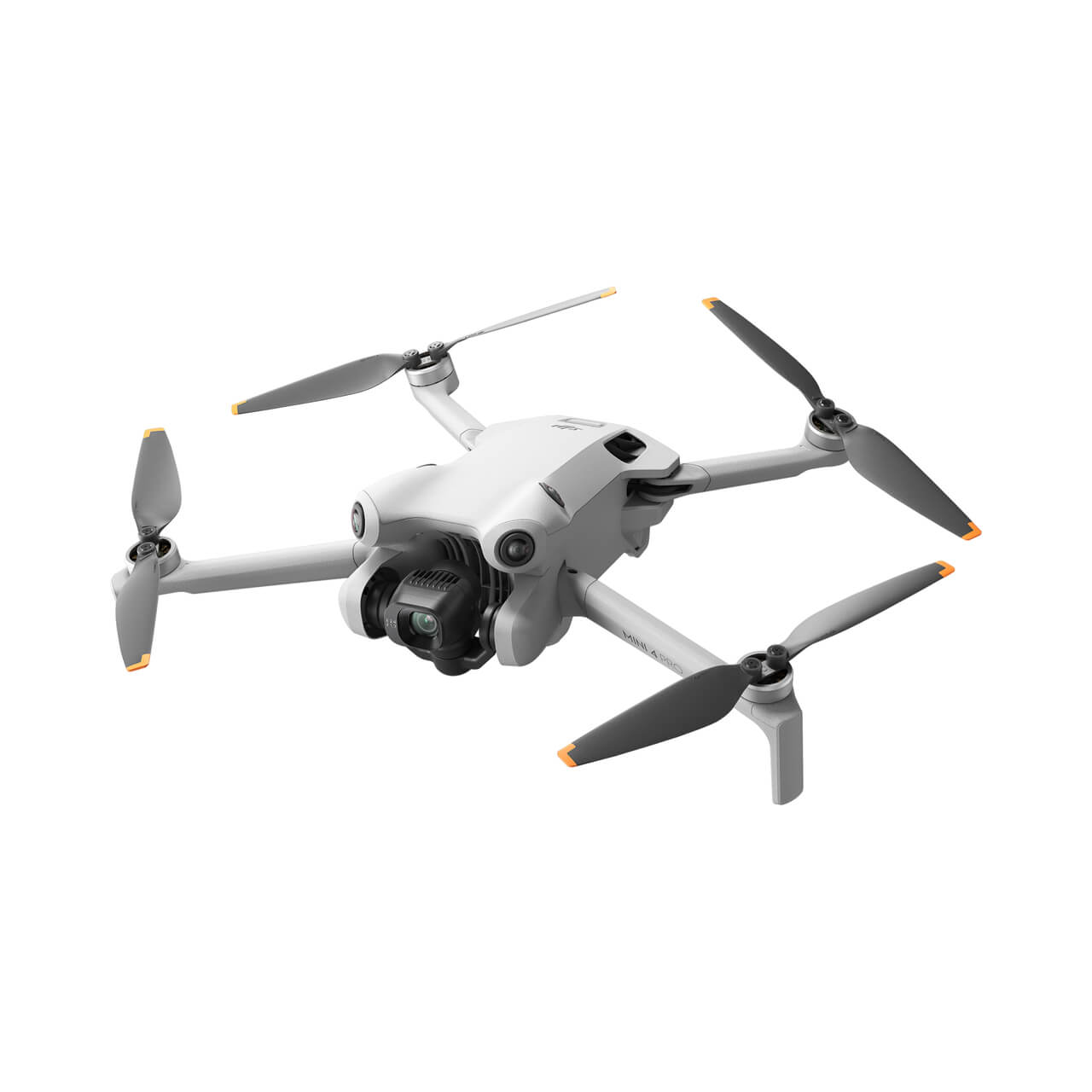
It might be small but there’s nothing mini about the DJI Mini 4 Proi's flight and camera performance, which are nothing short of sensational. If you’re considering buying your first ever camera drone but can’t decide which is the best model for you, make a beeline for this model – right now it’s the best sub-250 gram drone money can buy.
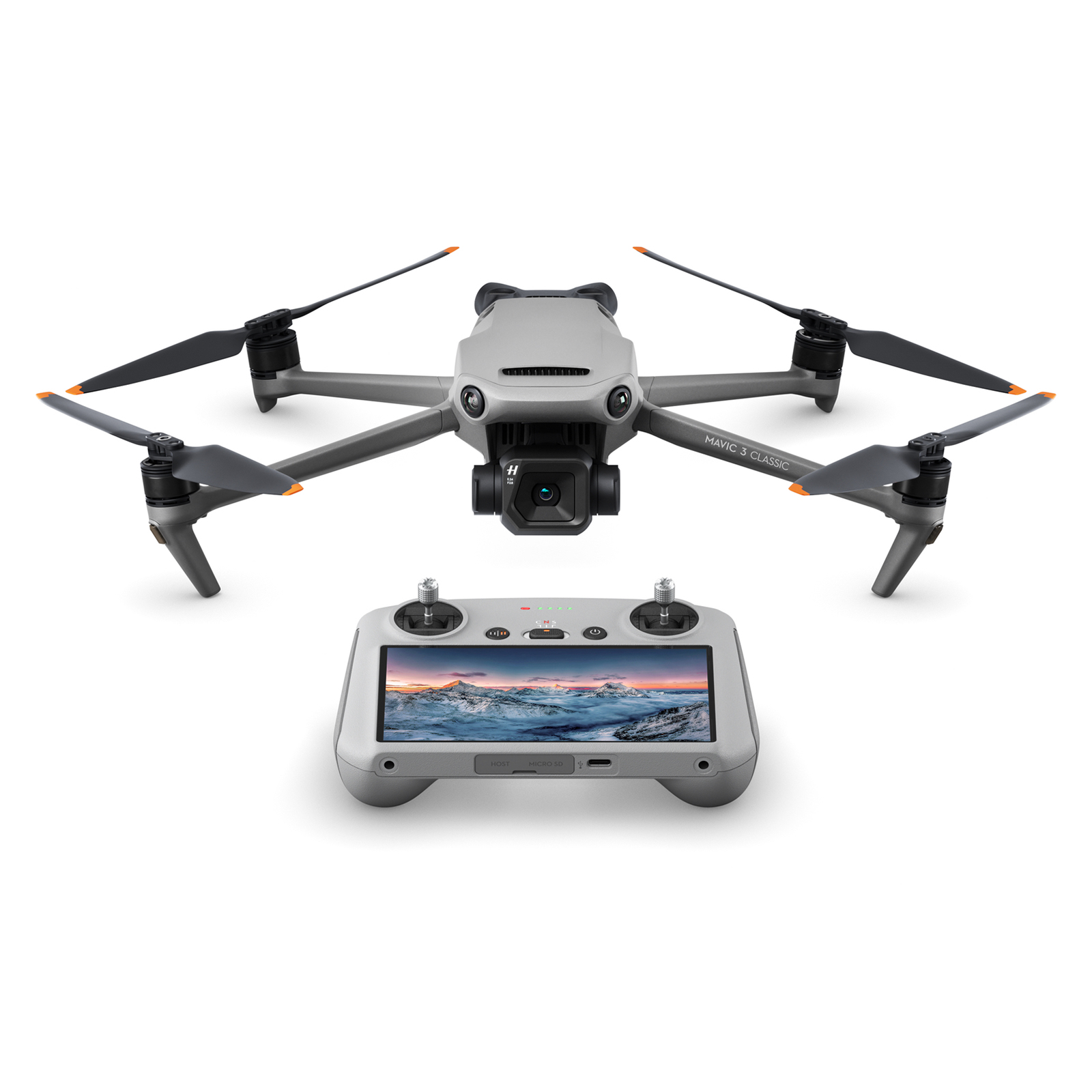
The Mavic 3 Classic can shoot exactly the same pin-sharp 5.1K imagery as the Mavic 3’s main camera while costing quite a bit less. When it comes to shooting high-resolution footage fit for most broadcast media or stills sharp and detailed enough to grace the cover of a glossy magazine, this is the drone you want.
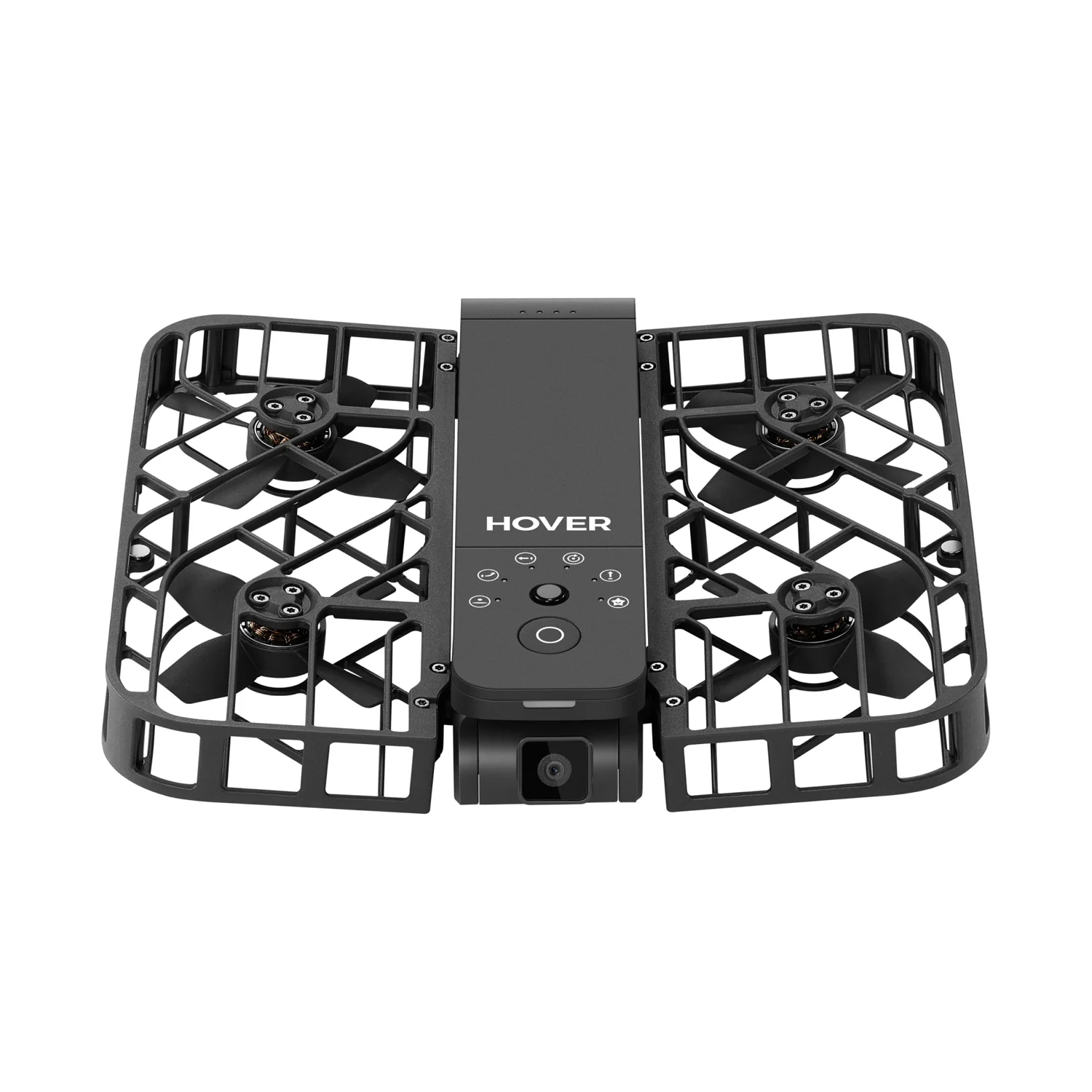
The HoverAir X1 is the first pocket-sized 2.7K camera-equipped drone not to require a hand controller at any time, although it also works in conjunction with an app for further functionality. Designed for close proximity selfies, this little foldable pocket rocket is unquestionably the most accomplished personal drone to date and for several reasons.
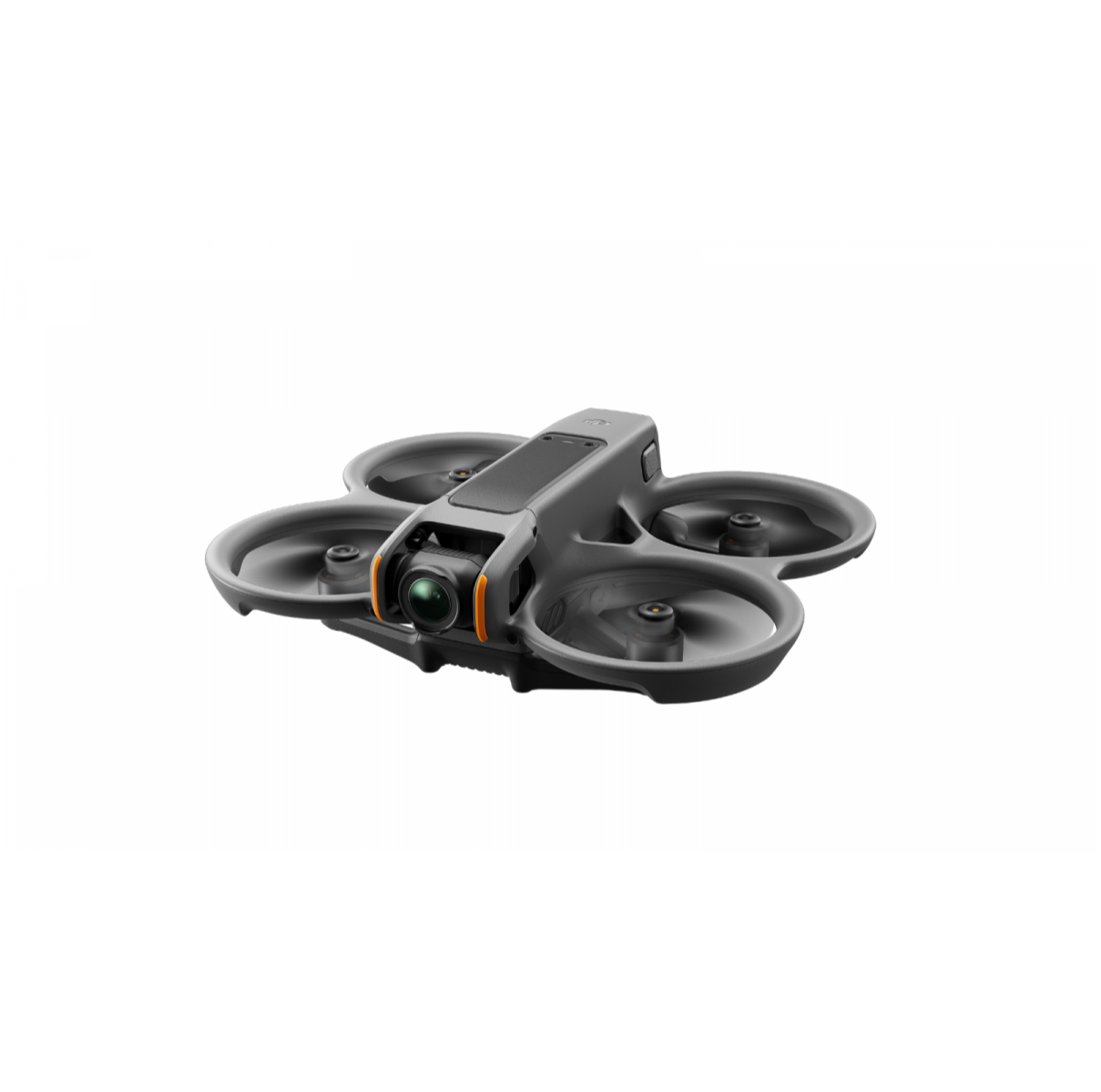
The DJI Avata 2 is a standout FPV drone, offering exceptional ease of use, intuitive controls, and thrilling flight experiences. Its upgraded camera and immersive goggles make it a top choice for beginners and enthusiasts alike, despite its challenging manual mode.
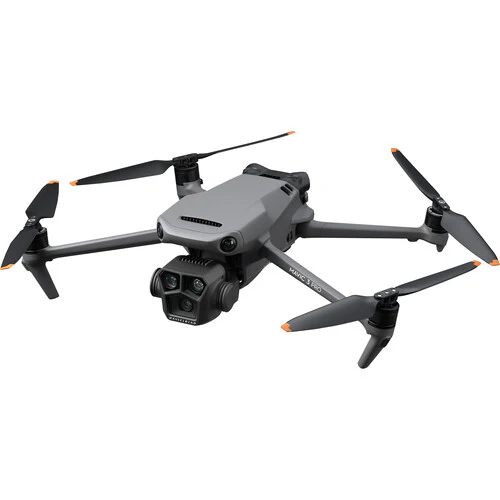
The DJI Mavic 3 Pro is a top-tier prosumer drone, offering unparalleled versatility with its triple-camera system, exceptional flight performance, and user-friendly RC controller. It's ideal for serious aerial videographers and photographers, delivering stunning 5.1K video and sharp images with ease.
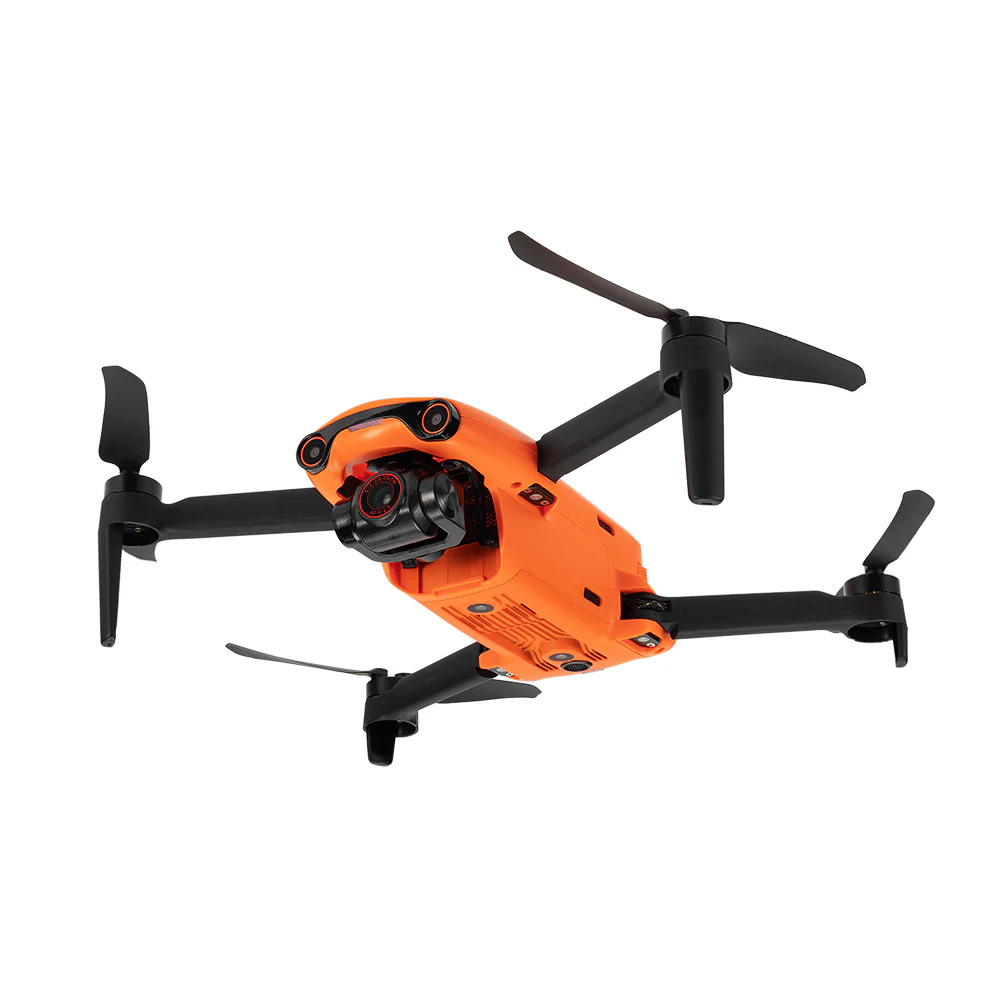
The Autel EVO Nano+ impresses with its compact size, superb 50MP camera, and reliable flight performance. It’s an excellent choice for those seeking a portable drone with advanced features, though its app and range limitations slightly diminish its appeal for prosumers.
The best drone to buy right now
Best overall
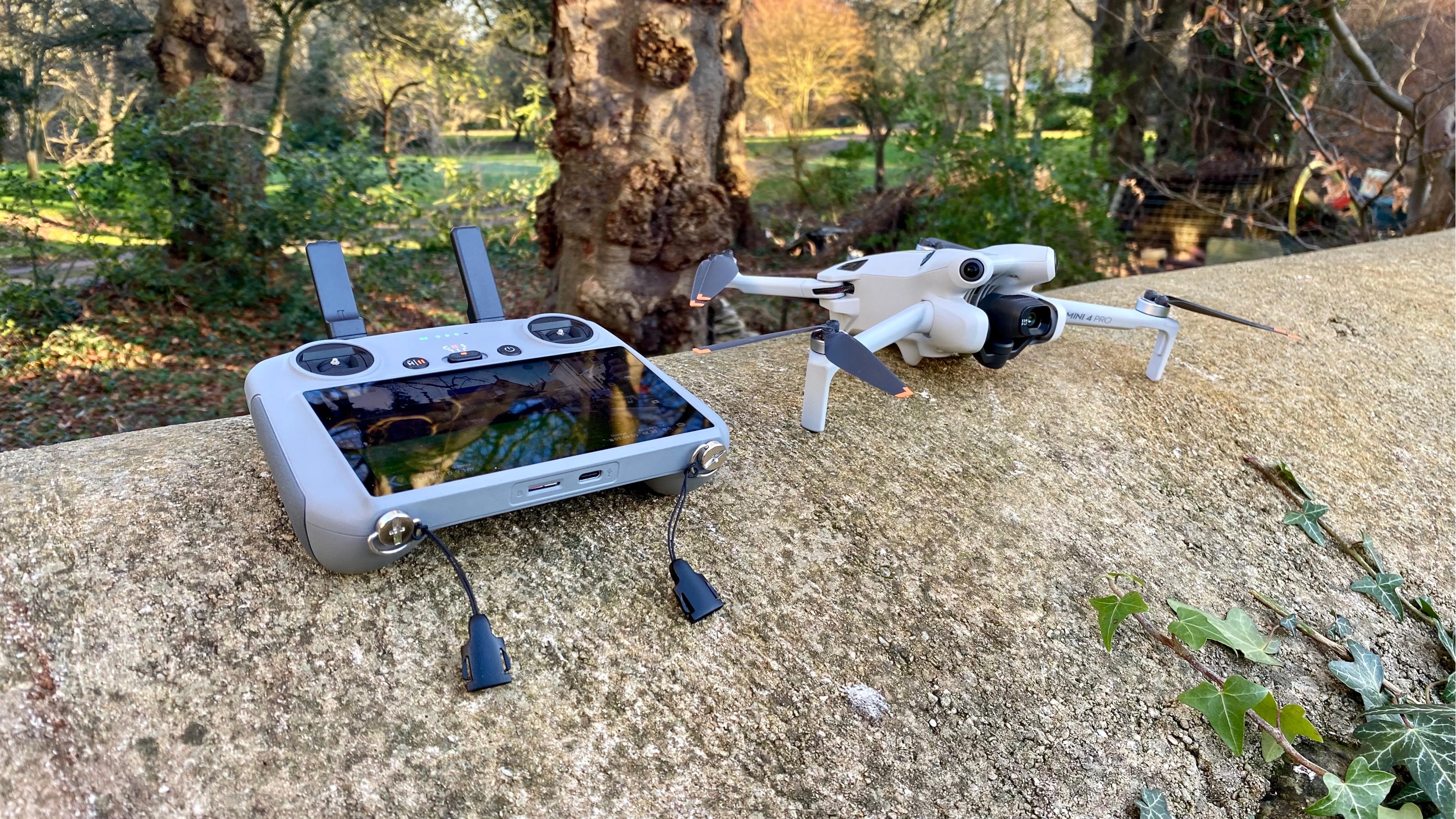
Specifications
Reasons to buy
Reasons to avoid
When choosing the best drone for you, the options are often DJI vs DJI. This camera drone roundup is full with DJI drones, ranging from the more affordable to premium models – how come the DJI Mini 4 Pro is at the top, though?
Many features tip the scale in favour of the DJI Mini 4 Pro. First, it's a sub-250g drone, meaning in many countries, you don't need additional licences to fly it. It's a joy to fly, too, with a whole host of automatic manouvers pre-loaded on the controller/drone.
Plus, there is that gorgeous camera, which really sets apart the Mini 4 Pro from similarly-sized drones. It can shoot videos in up to 4k resolution @ 100 fps, which is more than you need for most of the content you might capture with such a dinky drone.
Flight time is a commendable 34 minutes with the Intelligent Flight Battery, which can be extended to 45 minutes using the Intelligent Flight Battery Plus. Put it all together, and you have yourself a drone that's pretty much unbeatable at this price point!
Read our full DJI Mini 4 Pro review.
Best for high-res video
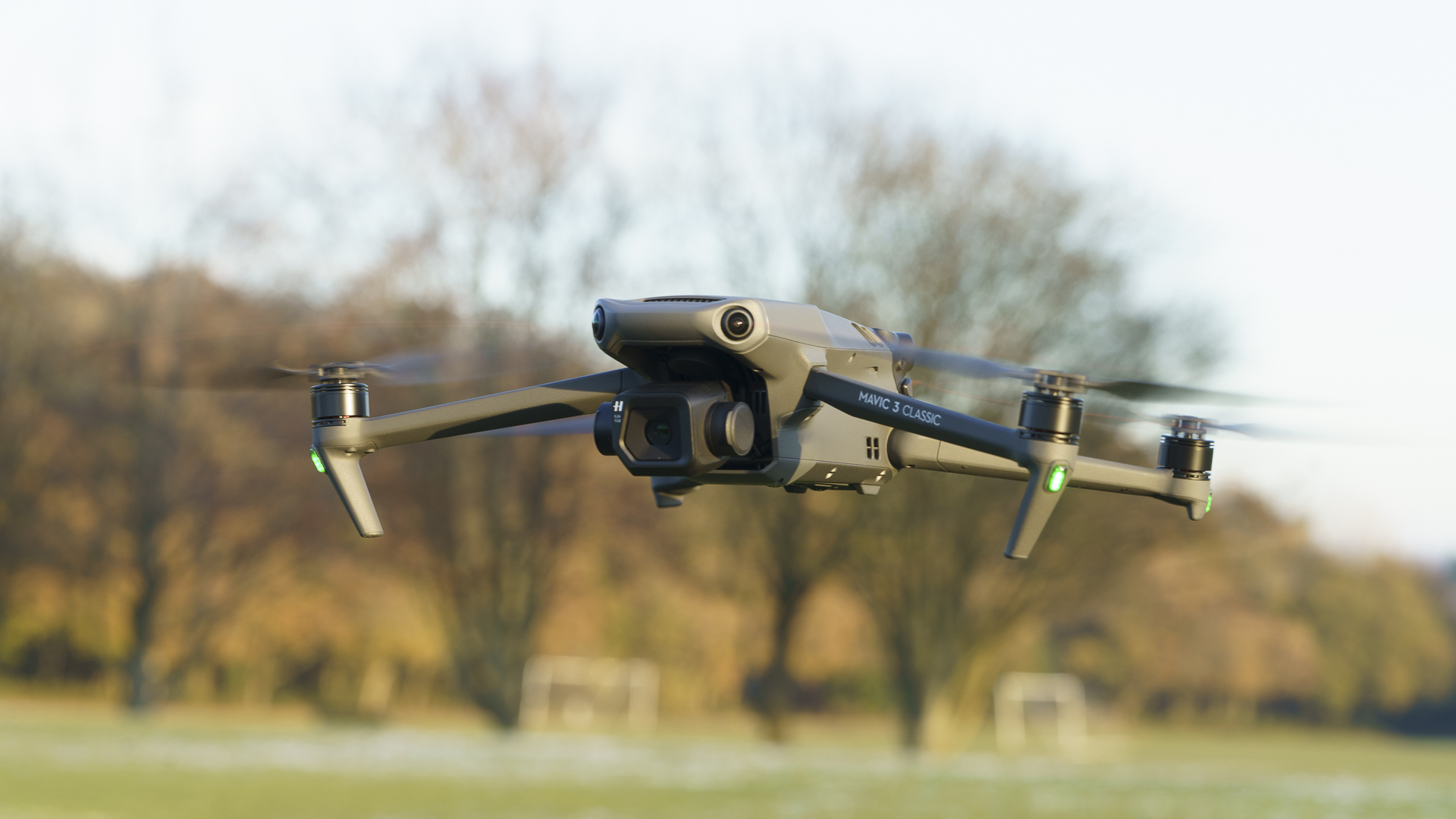
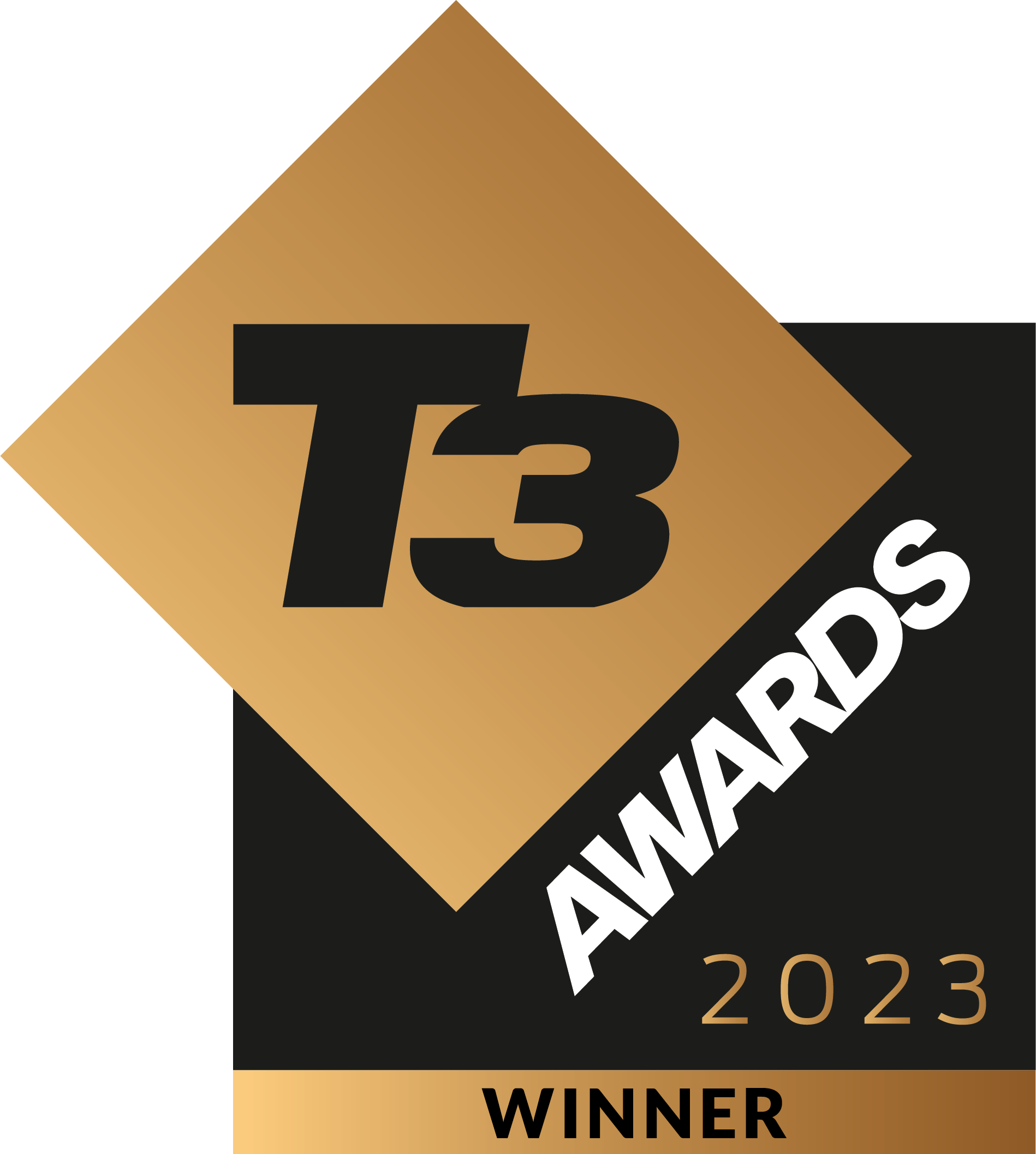
Specifications
Reasons to buy
Reasons to avoid
The Mavic 3 Classic is, to all intents and purposes, exactly the same drone as the Mavic 3 – it’s the same shape, size and weight, and it shares the same onboard specs and flight characteristics.
In fact, the only difference between the two is that the new Classic variant comes without the 28x hybrid tele-zoom camera that sits atop the Mavic 3’s main 4/3 CMOS f/2.8-f/11 Hasselblad camera. This means that the Classic is capable of shooting exactly the same pin-sharp 5.1K imagery as the Mavic 3’s main camera while costing quite a bit less.
For anyone unfamiliar with the specs of the standard Mavic 3, the Mavic 3 Classic folds into a tidy package for transport and comes equipped with omnidirectional obstacle sensing, 9-mile HD video transmission and a plethora of smart, fully autonomous flight features, including active tracking, MasterShots, QuickShots, Hyperlapse and Panorama.
When it comes to shooting high-resolution footage that’s fit for most broadcast media or stills sharp and detailed enough to grace the cover of a glossy magazine, the new Classic is an absolute shoo-in. In fact, at this price, it’s almost a steal.
Read our full DJI Mavic 3 Classic review.
Best for selfies
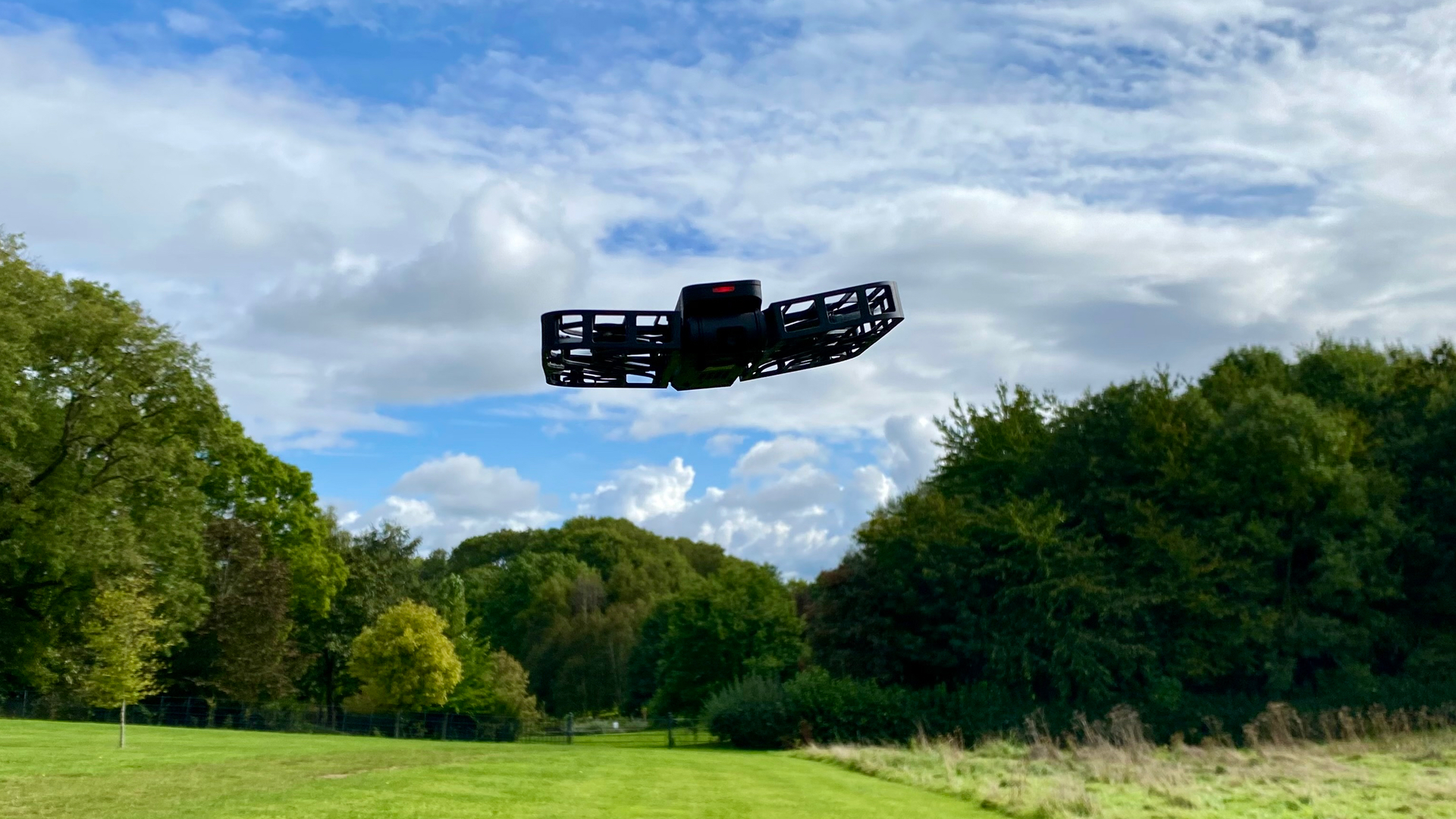
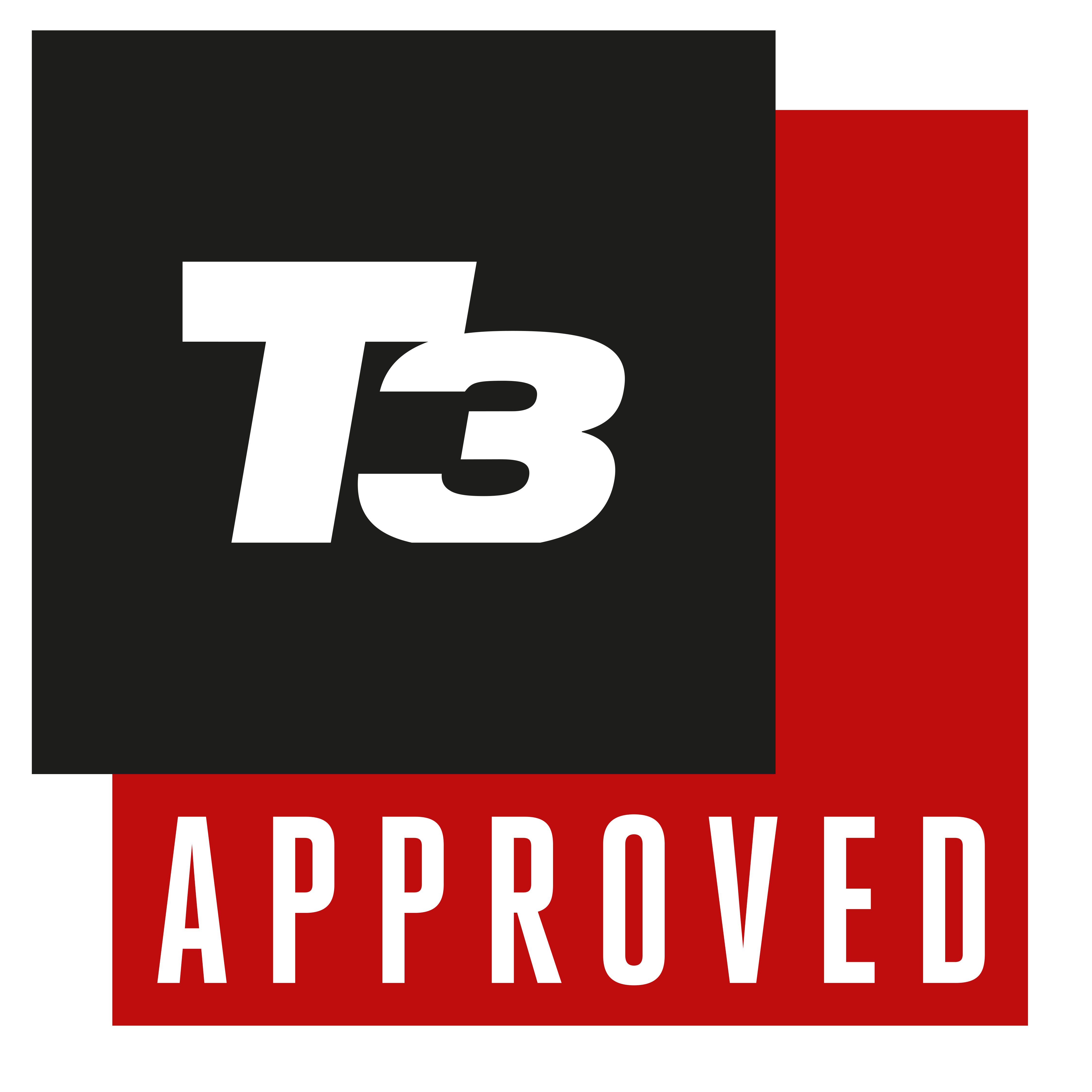
Specifications
Reasons to buy
Reasons to avoid
The HoverAir X1 is the first pocket-sized 2.7K camera-equipped drone to not require a hand controller at any time, although it also works in conjunction with an app for further functionality. Designed for close proximity selfies – the HoverAir X1 has a flight range of between 10 and 50 feet – this little foldable pocket rocket is unquestionably the most accomplished personal drone to date and for several reasons.
The drone’s lattice cage makes it incredibly safe for users while protecting the four tiny propellors from damage. And since it weighs just 125 grams and folds in half, it’s ultra easy to carry around, too.
The HoverAir X1’s camera is remarkable given its titchy dimensions – it not only shoots crisp 2.7K footage, but the addition of a gimbal-like shock mount and onboard digital image stabilisation ensures that footage remains level and cinematically smooth, even in breezes up to 15mph. Amazingly, it will also record ambient audio without the sound of the props in the background – simply talk into your phone’s microphone, and the audio is automatically synced to the visuals.
If you’re in the market for a lightweight drone to film yourself and friends in a myriad of close proximity situations, you almost certainly won’t find a better model than this little cracker. Warmly recommended.
Read our full HoverAir X1 review
Best for cinematic shots
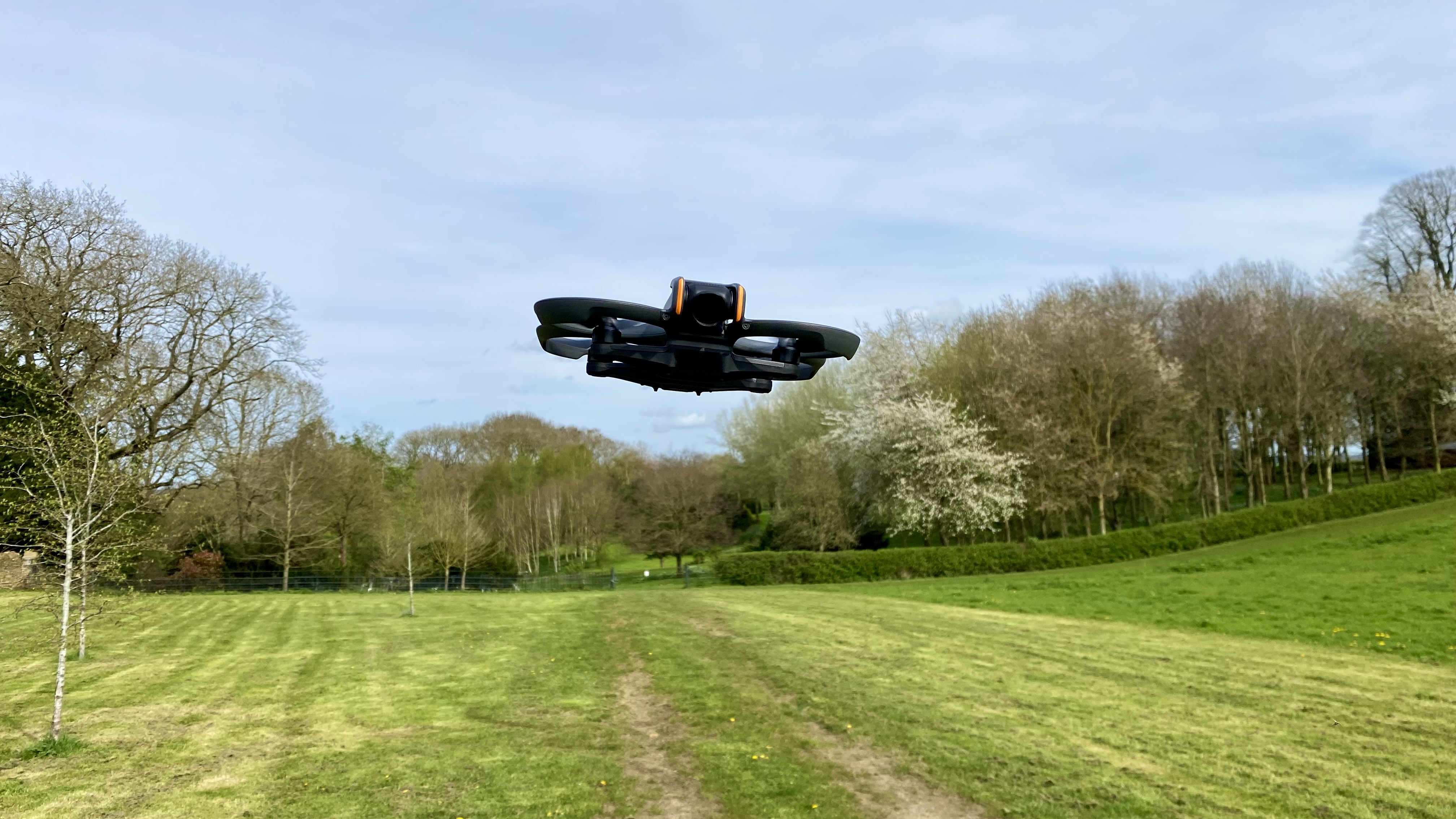
Specifications
Reasons to buy
Reasons to avoid
The DJI Avata 2 sets a new standard for FPV (First Person View) flying with its immersive experience and intuitive control. Equipped with amazing flight characteristics, it allows users to perform flips and drifts effortlessly, delivering stunning aerial footage.
With front and rear obstacle sensing, robust design, and easy-to-use flight control, it offers a seamless flying experience for both beginners and experienced pilots.
One of its standout features is the DJI Goggles 2, which provides a comfortable fit and stunning image resolution, enhancing the immersive flying experience. The Motion 3 controller adds to the ease of use, offering intuitive control and precise manoeuvrability.
In terms of pricing and availability, the Avata 2 is offered in different packages, including the Fly More Combo with additional accessories. While it's priced competitively, it delivers exceptional value for its performance and features. A top choice for enthusiasts and professionals looking for an exhilarating FPV flying experience.
Check out our full DJI Avata 2 review.
Also consider: The first-gen DJI Avata is a brilliant FPV drone with intuitive controls, impressive camera performance, and exhilarating speed. Although setup can be time-consuming, its ready-to-fly design and stunning footage make it worth the investment for drone enthusiasts.
Best premium
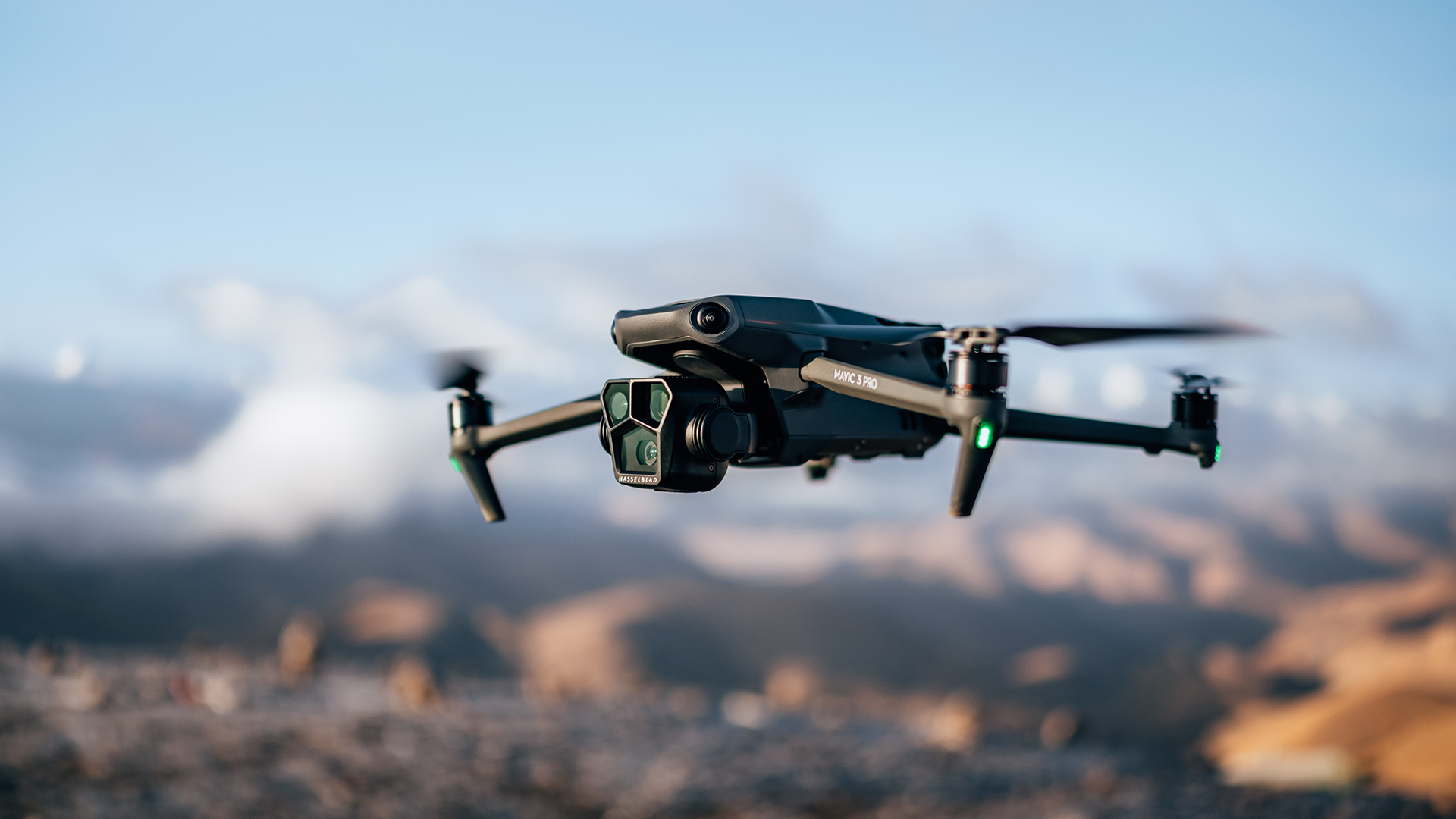
Specifications
Reasons to buy
Reasons to avoid
This is the prosumer drone we’ve all been waiting for. Yes, the drone itself is the same as the current Mavic 3 but this one takes aerial videography and photography to a much higher echelon. You get three cameras with this drone: a wide-angle 24mm Hasselblad with an aperture range of f/2.8-f/11 and an 84˚ field of view; an all-new 3x 70mm medium tele camera with a 35˚ field of view and a fixed aperture of f2.8; and a 166mm 7x zoom lens with a large-ish aperture of f3.4.
This means you can create amazing widescreen landscape shots, zoom in a little to add a striking shallow depth of field or zoom in from afar to shoot wildlife without any disturbance from the drone. You also get premium resolution – 5.1K at up to 50 frames per second and 4K at up to 120fps – and huge images from 20 megapixels to 48MP.
If you’re looking for a do-it-all pro-spec camera drone that flies supremely well and delivers impeccable imagery flight after flight, this is the model for you.
Now read our full review of the DJI Mavic 3 Pro
Best DJI-alternative
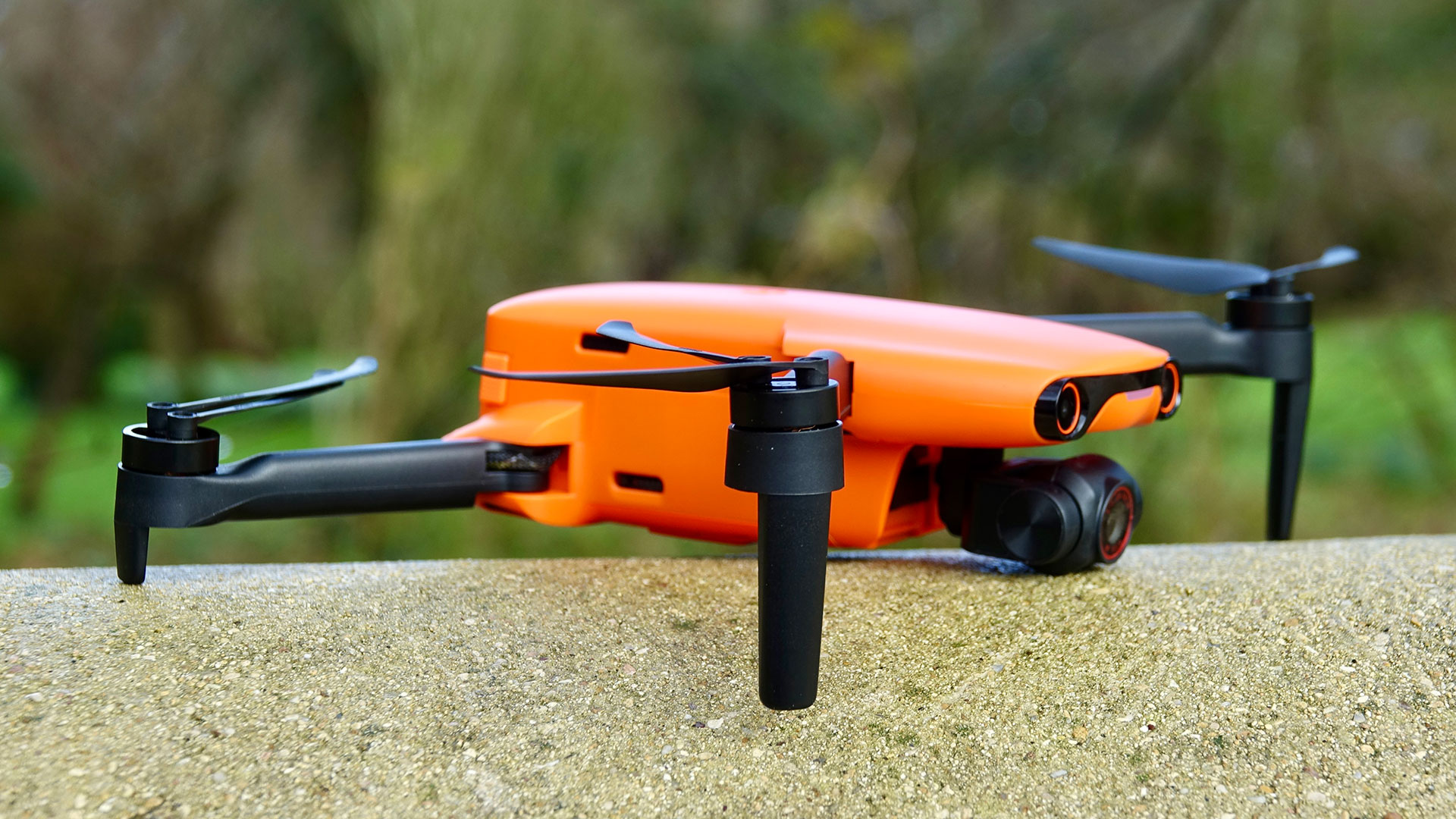
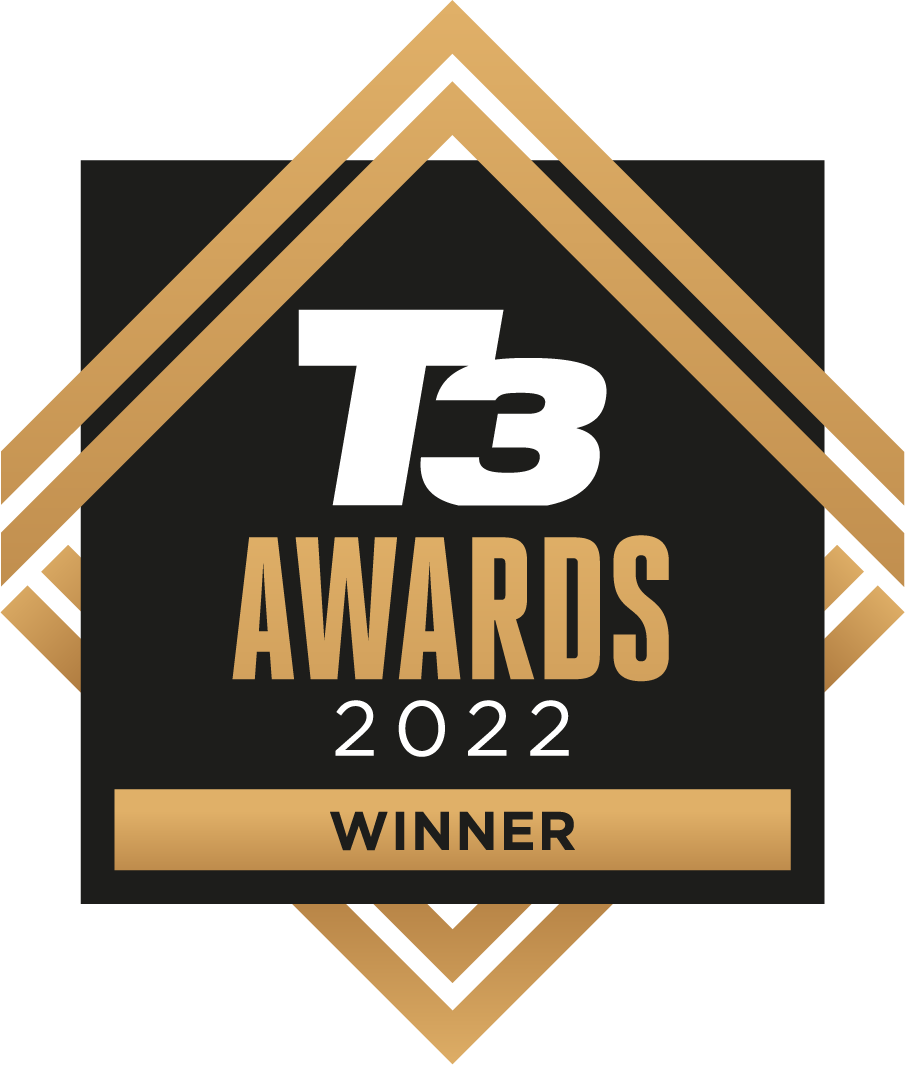
Specifications
Reasons to buy
Reasons to avoid
The little Evo Nano+ is a sterling choice of camera drone for both amateurs and prosumers, as well as anyone who wants to enjoy the thrills of high-quality aerial cinematography on a relative budget and without the need to apply for a special license to fly it. In fact, we like it so much that we awarded it Best Drone at the 2022 T3 Awards (although it's a seriously close-run thing with the DJI Mini 3 Pro).
The Plus boasts a wide f1.9 aperture and RYYB filtering, which means it will shoot stunning footage in low-light conditions and in full 4K video and 50MP for stills. This dinky drone clocks in at under 250g, which means you won’t need to jump through as many legal hoops before taking to the skies. The sharpness and clarity of the Nano+ are exemplary for a drone of this size and weight, hence why we think this drone is perfect for amateur filmmakers and anyone looking for a camera drone that’s light as a feather and small enough to slip into a coat pocket.
Read our full Autel Evo Nano+ drone review
Best mid-range
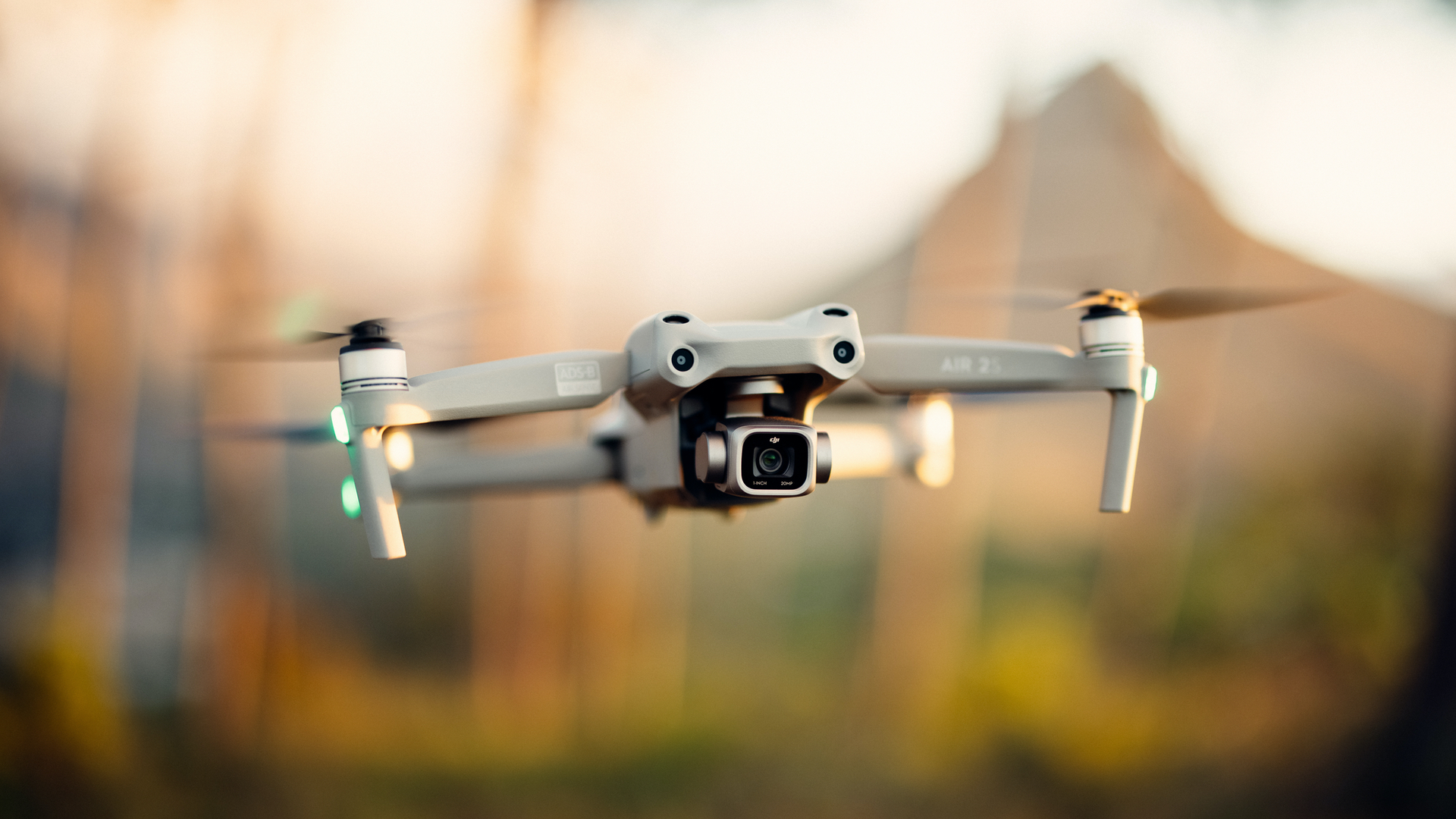
Specifications
Reasons to buy
Reasons to avoid
Released in April 2021, the DJI Air 2S is a sensational camera drone in every respect. Despite being lightweight and eminently portable, this foldable drone packs some incredible onboard tech, including a 1-inch CMOS sensor that enables you to capture strikingly sharp images and video. The Air 2S will shoot 5.4K video at 30fps or 4K at 60fps and 150Mbps, as well as 20MP stills (by comparison, the older but still worthy Mavic Air 2's half-inch CMOS sensor can manage 4K/60fps at 120Mbps and 12MP stills). The Air 2S also flies absolutely beautifully (and quietly), comes with four-way obstacle sensors to help you avoid collisions, and boasts some impressive advanced in-flight features.
Head to our DJI Air 2S review for more of what we thought of it, or see how it matches up against its predecessor in our DJI Air 2S vs DJI Mavic Air 2 comparison.
How to choose the best drone for you
In order to figure out which is the best drone for you, it really helps to understand a bit about how different types of drones work. In a nutshell, drones rely on rotors for propulsion and control. The faster these rotors spin, the greater the upward lift. The movement of a drone can be changed by altering the speed of one or more of its rotors.
These rotors are powered by motors which can be 'brushed' or 'brushless'. The difference? Brushed motors use a mechanical process (a 'commutator') to move the magnetic field that turns the rotors. Brushless motors, which are usually found on more expensive drones, are generally preferable and rely more on electronics rather than additional physical parts, such as the brushes in the commutators, to generate power. This means they generate less friction (and bear in mind that friction slows the motor down), produce less heat and provide better all-around performance.
Another important factor to take into consideration is skill level. Beginners should look for more rugged models, as well as features such as rotor protectors and one-touch recall controls. But don’t make the mistake of assuming smaller, lighter drones are better for beginners – these drones are often designed for those keen to perform complex aerial manoeuvres and might well be trickier to control.
Finally, remember to look for drones with the features you’re specifically keen on, and no more. Opting for a drone which boasts features you don’t need and won’t use will mean you’ll spend more on a drone which will weigh more and won’t perform in the way you want it to.
How we test the best drones
We test drones rigorously, evaluating factors like flight performance, camera quality, battery life, and ease of use. In the field, we assess stability, maneuverability, and response to controls, ensuring they handle well in various conditions.
We examine features like obstacle avoidance and follow-me modes for effectiveness. We scrutinise image and video quality, looking at clarity, colour accuracy, and stabilisation.
Battery life is tested through multiple flights, gauging how long each drone can stay airborne on a single charge. We also consider user experience, including setup process, app functionality, and overall intuitiveness.
FAQ
Do I need a licence to fly a drone?
Drone licensing requirements vary by country and drone weight. Recreational pilots often don't need licenses for lightweight drones but must adhere to flight regulations. Commercial drone use typically requires licensing. Always check local regulations to ensure compliance and safe operation.
Is it illegal to fly a drone over houses UK?
In the UK, it's not illegal to fly a drone over houses, but it's subject to regulations. Recreational drone pilots must maintain a safe distance from people, buildings, and vehicles. Flying over houses is allowed if privacy and safety are respected. Commercial drone operations require specific permissions from the Civil Aviation Authority.
Is it illegal to fly a drone over houses US?
In the US, it's not necessarily illegal to fly a drone over houses, but there are regulations set by the Federal Aviation Administration (FAA) that must be followed. These regulations include maintaining a safe distance from people and property, flying below 400 feet, and avoiding restricted airspace. Violating these regulations could result in legal consequences.
Can I fly a drone in my garden UK?
Yes, you can fly a drone in your garden in the UK, but you must follow the regulations set by the Civil Aviation Authority (CAA). Keep your drone within your line of sight, avoid flying near airports or crowded areas, and respect people's privacy and property.
Can I fly a drone in my garden US?
Flying a drone in your garden in the US is generally allowed, but it's important to follow Federal Aviation Administration (FAA) guidelines. Keep your drone within your line of sight, avoid flying near airports or crowded areas, and respect people's privacy and property. Some local regulations may also apply.
How much should you pay for a good drone?
The cost of a good drone can vary widely depending on factors like features, brand, and intended use. Generally, quality drones suitable for beginners can start from around $200 to $500, while more advanced models with professional-grade features can range from $1000 to several thousand dollars. Check out T3's best cheap DJI drone deals for the current offers.
Sign up to the T3 newsletter for smarter living straight to your inbox
Get all the latest news, reviews, deals and buying guides on gorgeous tech, home and active products from the T3 experts

Matt Kollat is a journalist and content creator who works for T3.com and its magazine counterpart as an Active Editor. His areas of expertise include wearables, drones, fitness equipment, nutrition and outdoor gear. He joined T3 in 2019. His byline appears in several publications, including Techradar and Fit&Well, and more. Matt also collaborated with other content creators (e.g. Garage Gym Reviews) and judged many awards, such as the European Specialist Sports Nutrition Alliance's ESSNawards. When he isn't working out, running or cycling, you'll find him roaming the countryside and trying out new podcasting and content creation equipment.
-
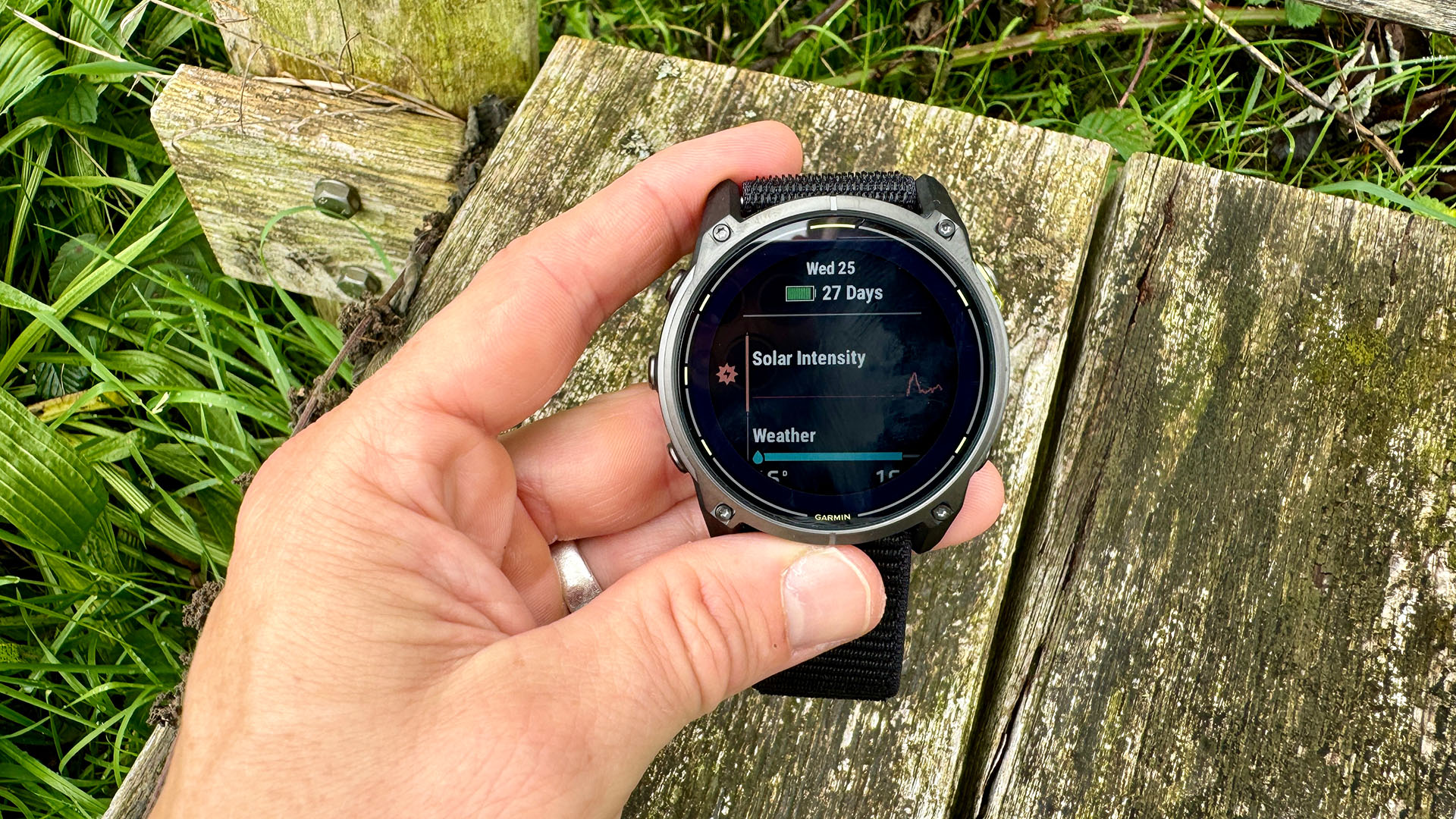 Garmin’s on a mission to update your wrist into oblivion as 100+ tweaks land on Fenix and Enduro watches
Garmin’s on a mission to update your wrist into oblivion as 100+ tweaks land on Fenix and Enduro watchesThe latest beta update looks comprehensive
By Matt Kollat Published
-
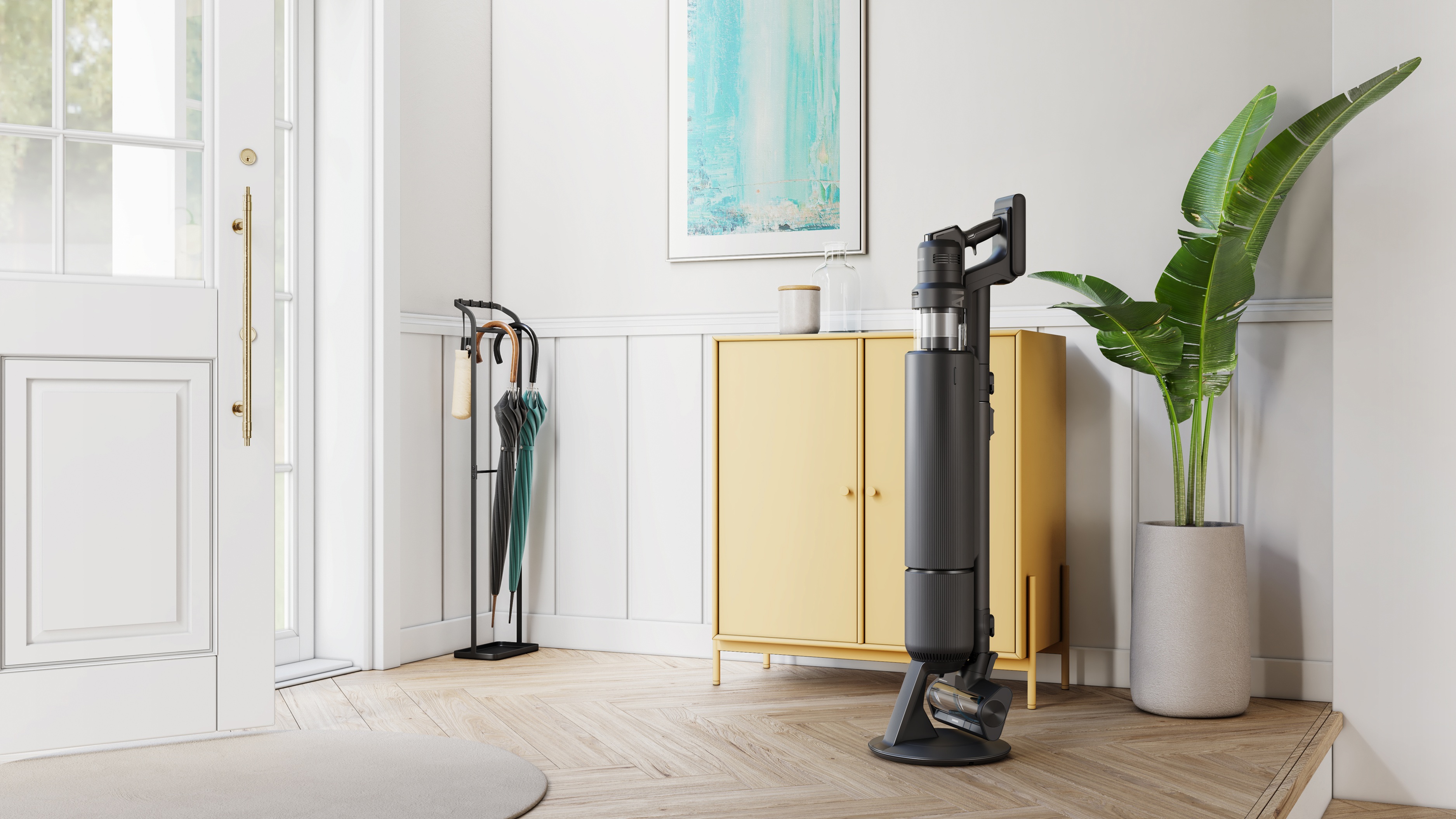 5 reasons you should be excited about the brand new Samsung Bespoke AI Jet Ultra
5 reasons you should be excited about the brand new Samsung Bespoke AI Jet UltraNot sure if it’s obvious... but I can't wait to try it
By Lizzie Wilmot Published
-
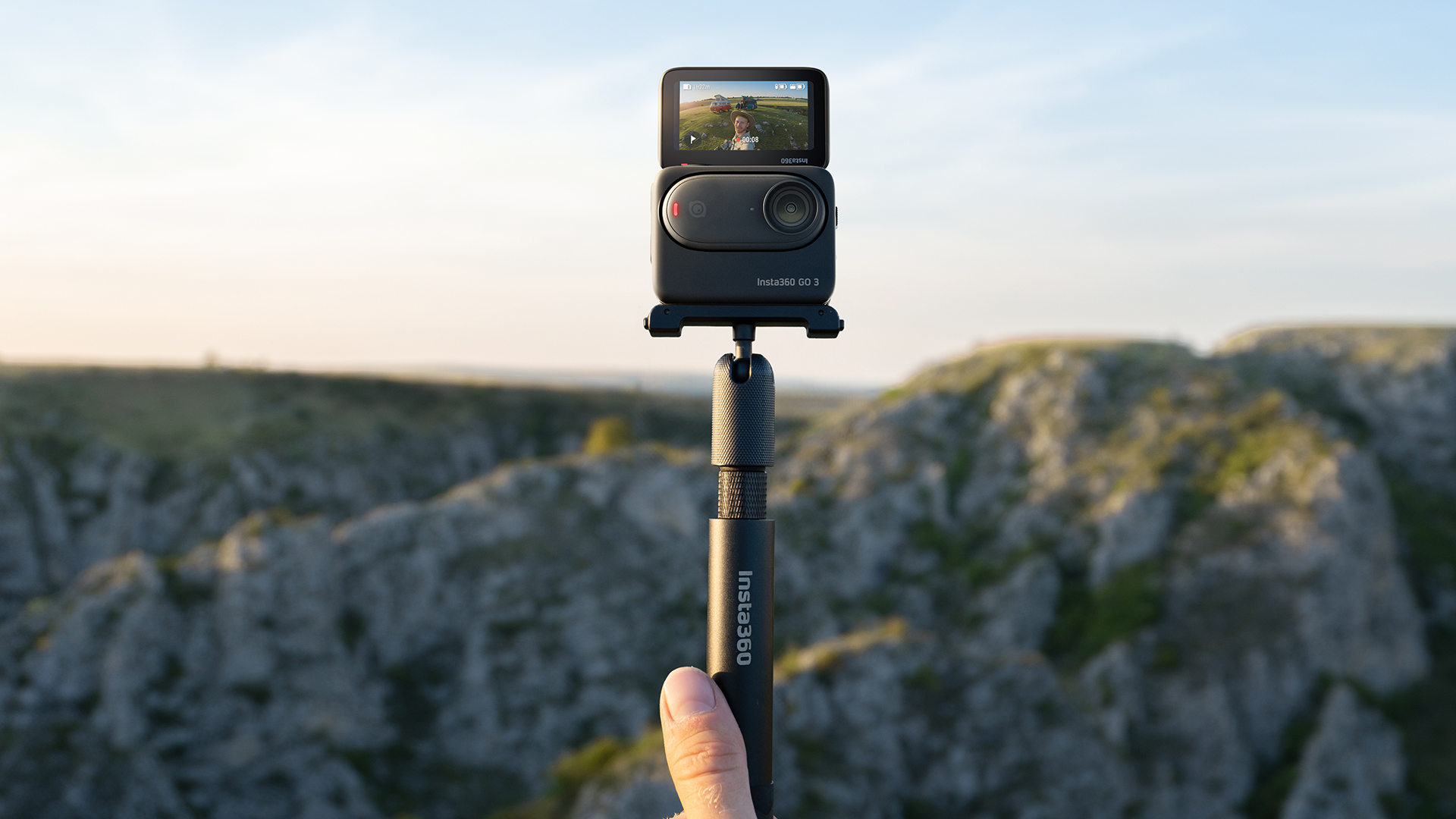 Best action camera 2025: rugged cams for adventurers and vloggers
Best action camera 2025: rugged cams for adventurers and vloggersThe best action cameras from GoPro, DJI, Insta360 and others to capture your adventures
By Matt Kollat Published
-
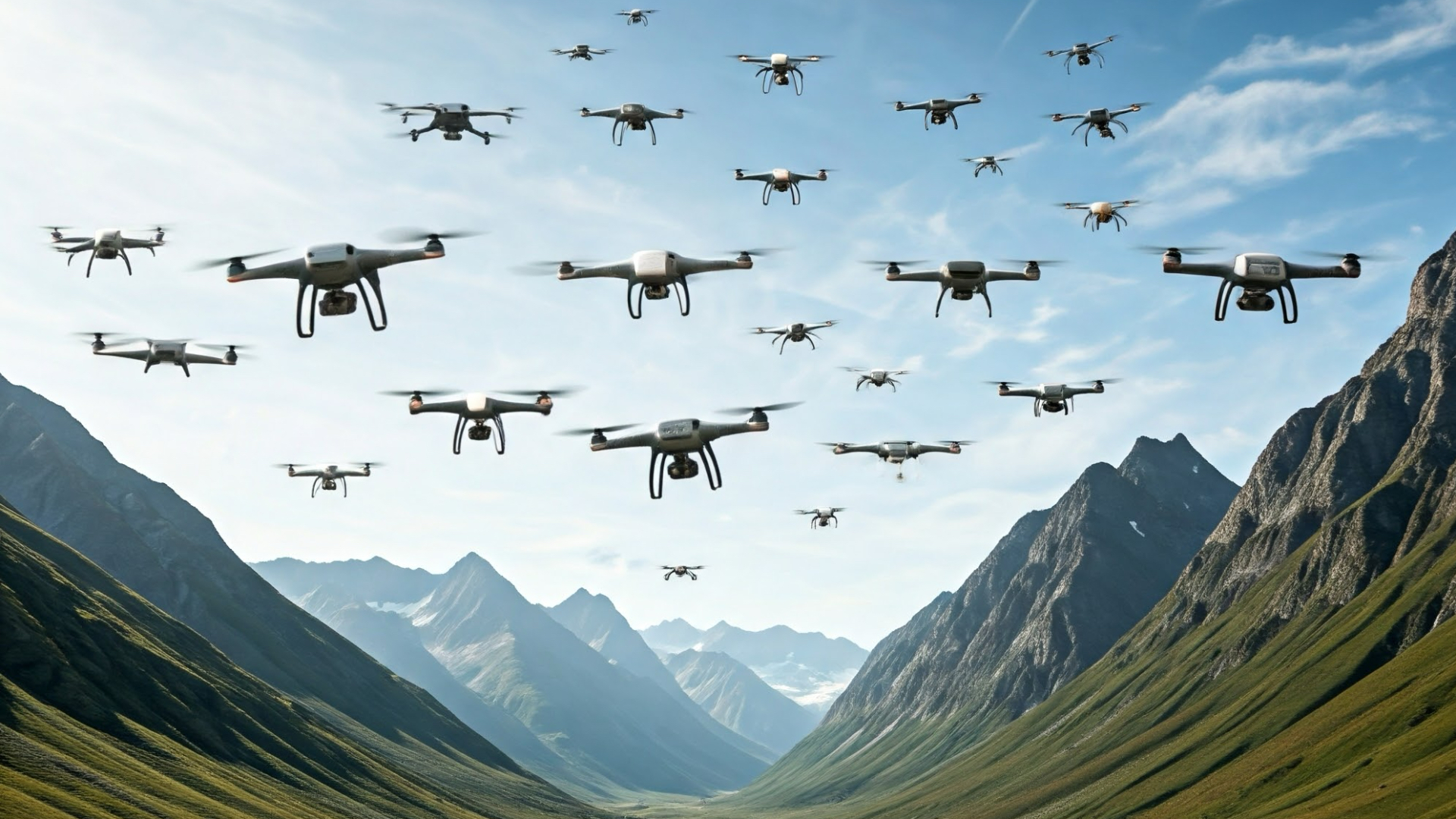 5 drone innovations I’d like to see in 2025 and beyond
5 drone innovations I’d like to see in 2025 and beyondLet's have more colour, longer flight times, modular cameras, drones that float and swarm technology
By Derek Adams Published
-
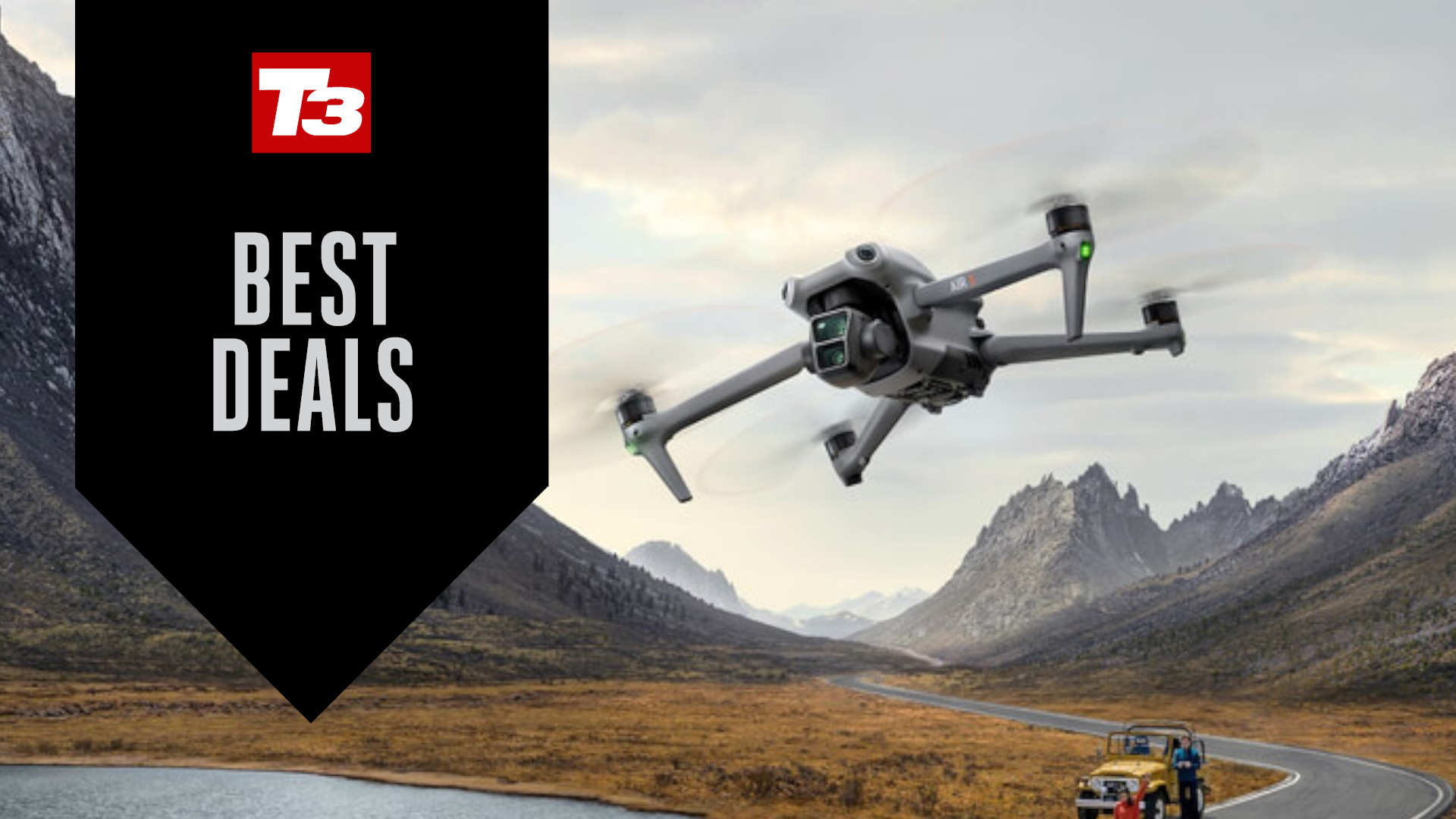 Hurry! DJI’s festive sale has up to 36% off drones, action cameras and more
Hurry! DJI’s festive sale has up to 36% off drones, action cameras and moreChristmas has come early people!
By Bryony Firth-Bernard Published
-
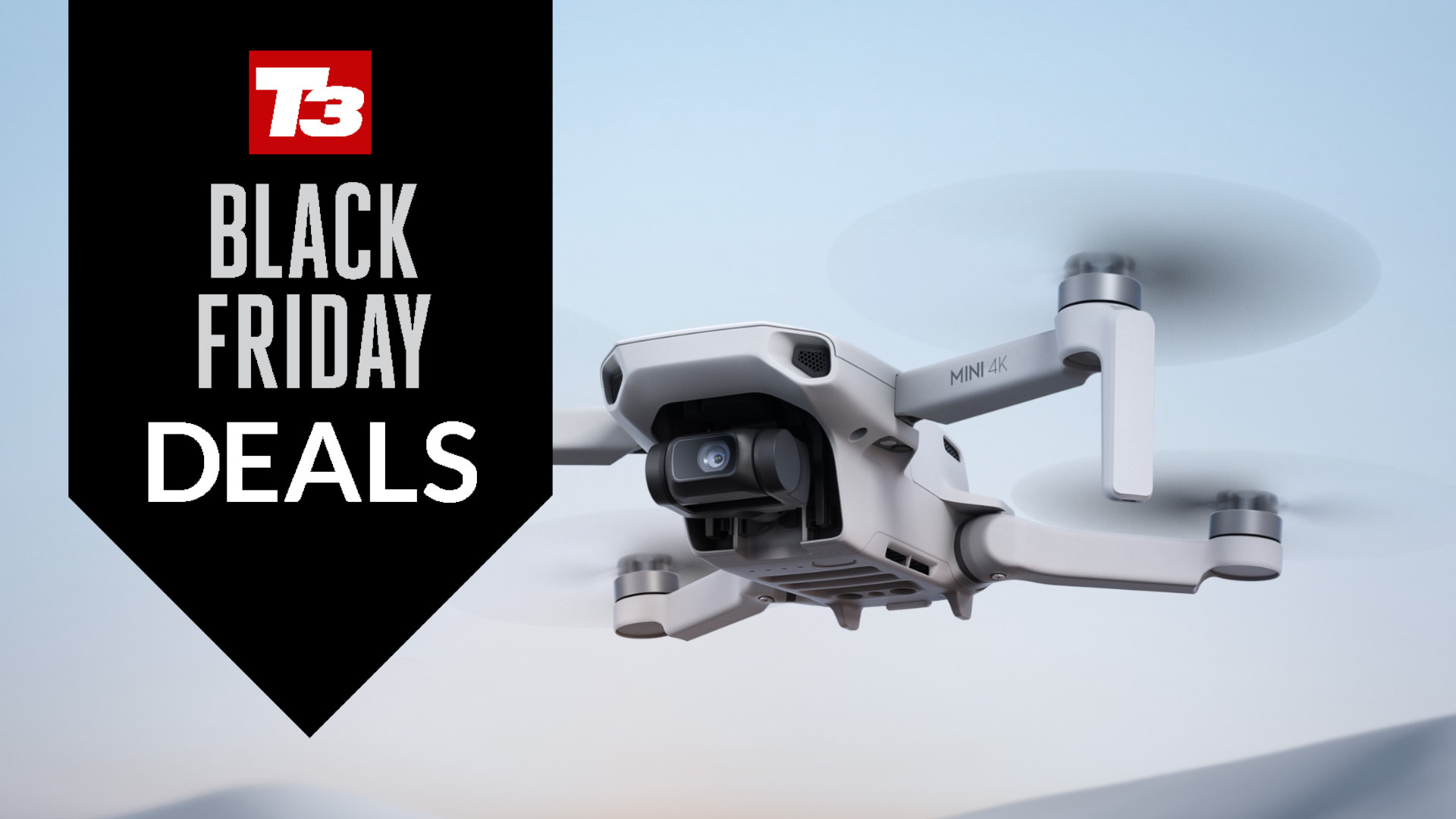 DJI’s best drone for beginner pilots suddenly drops to its lowest-ever price
DJI’s best drone for beginner pilots suddenly drops to its lowest-ever priceThe Mini 4K is less than $250 — don't let this amazing deal slip away!
By Bryony Firth-Bernard Published
-
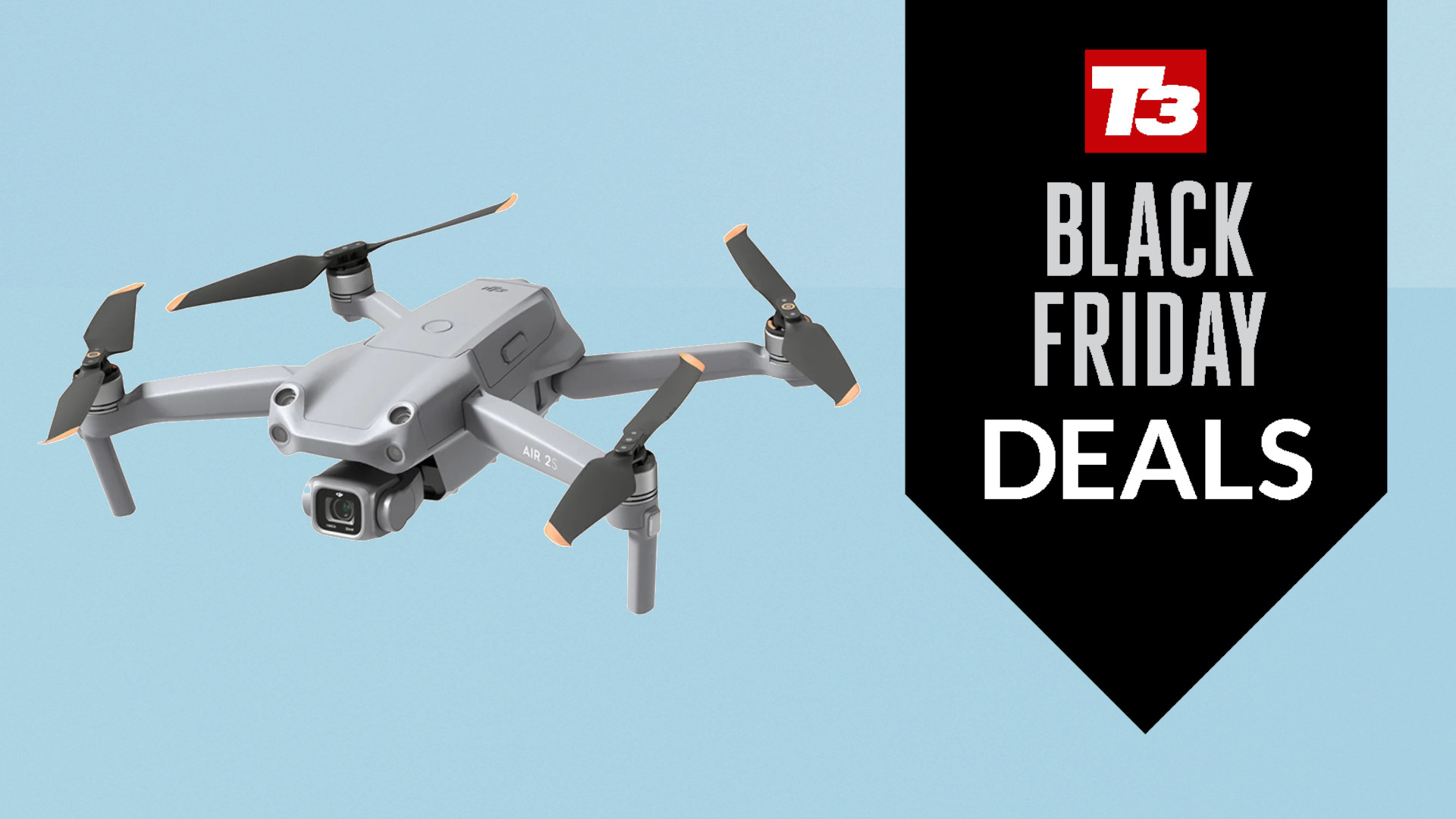 Quick! This 5-star DJI drone has $200 knocked off in Walmart’s Black Friday sale
Quick! This 5-star DJI drone has $200 knocked off in Walmart’s Black Friday saleThe AIR 2S Aerial is the ultimate camera drone
By Bryony Firth-Bernard Published
-
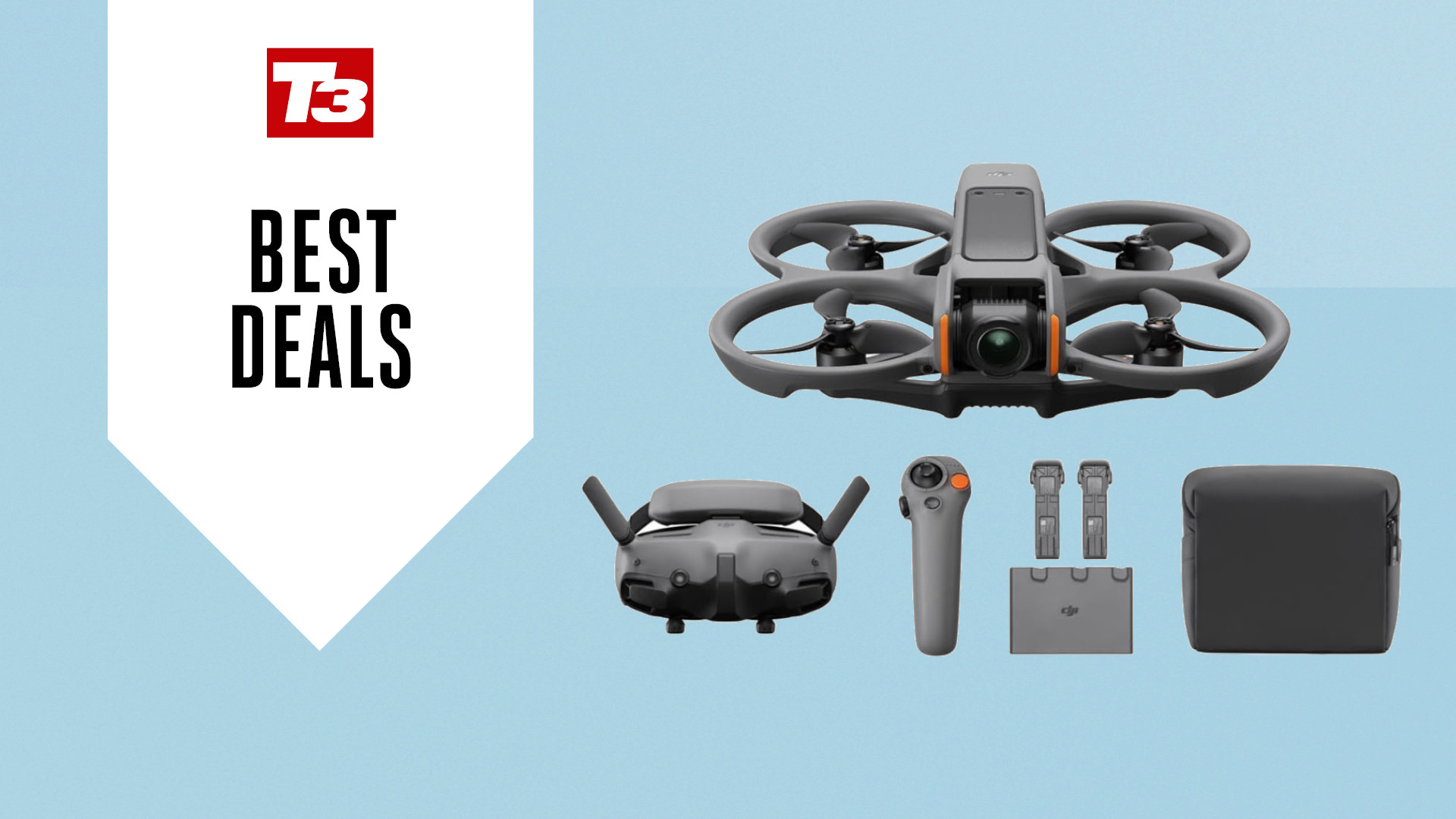 This DJI drone bundle has a (very) pretty pricetag in early Prime Day deal
This DJI drone bundle has a (very) pretty pricetag in early Prime Day dealIt's the cheapest it's ever been!
By Bryony Firth-Bernard Published
-
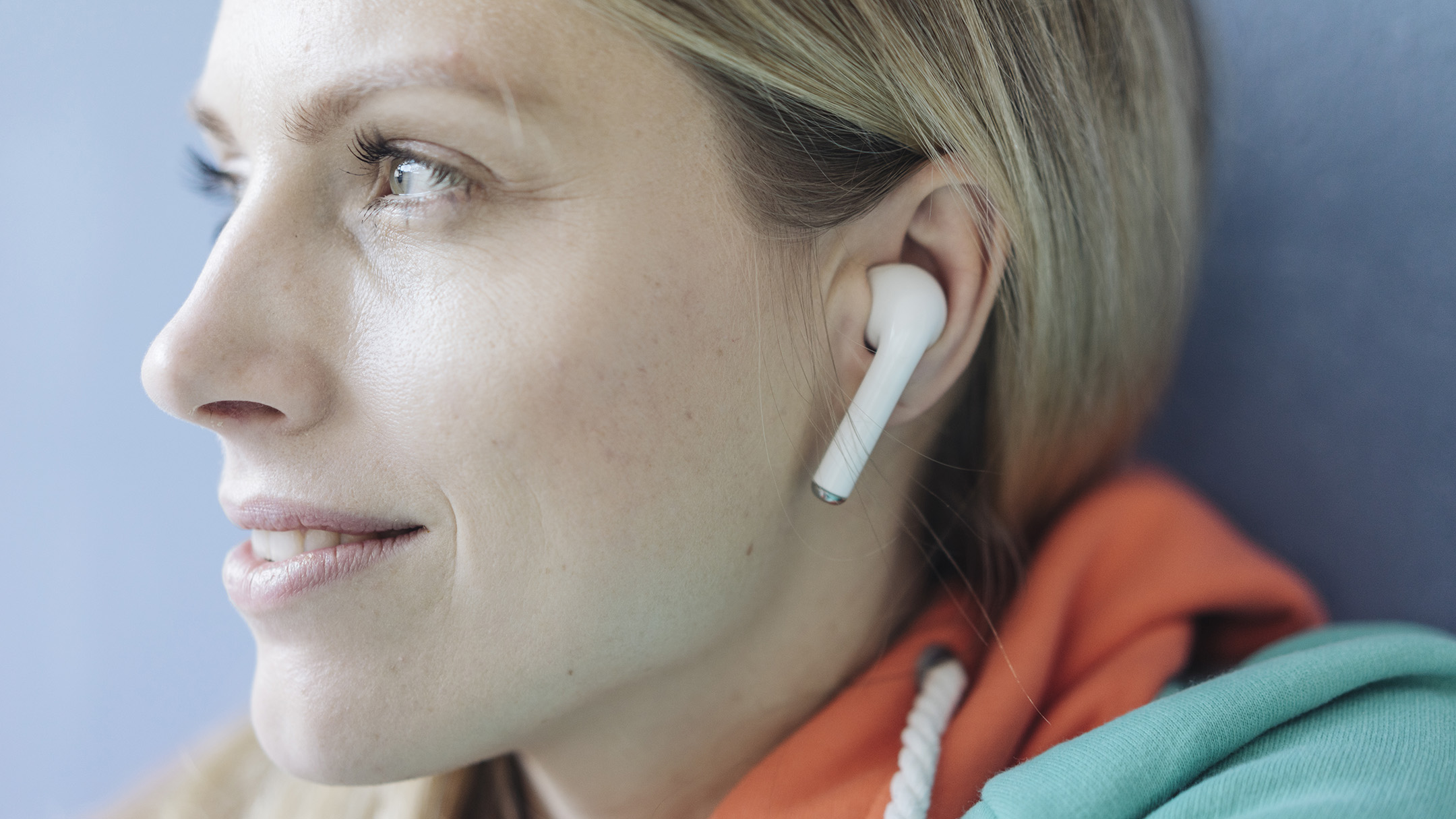 Best earbuds 2025
Best earbuds 2025Small in size but big in sound quality – these are ideal in-ear options
By David Nield Last updated
-
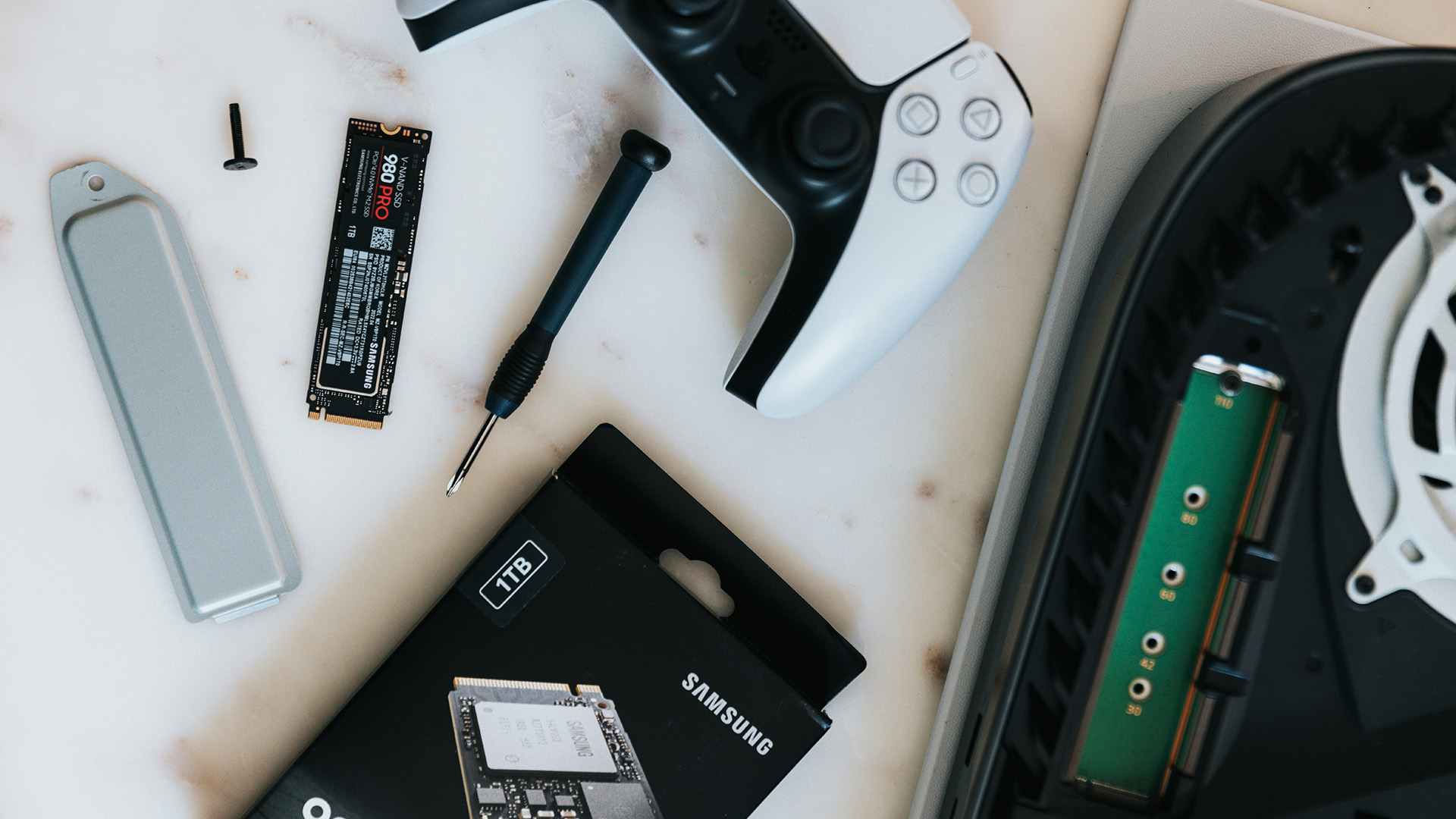 Best PS5 SSD 2025: store 100s more games on your PlayStation 5
Best PS5 SSD 2025: store 100s more games on your PlayStation 5The definitive guide to the best SSDs for PS5 available today
By Rik Henderson Last updated